Shows
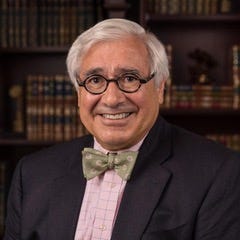 The Moral ImaginationVigen Guroian: Fairy Tales, Classical Learning, and The Moral ImaginationIn this episode I speak with Professor Vigen Gurioan about the revised and expanded edition of his book Tending the Heart of Virtue: How Classic Stories Awaken a Child’s Imagination. We discuss the power of stories, how they help can us develop self-knowledge, and how fairy tales and classic stories are essential for education and moral formation for children — and for adults. Fairy tales and classic stories can impress upon us profound philosophical and often theological insights about life and death, the good and beautiful, the value of courage and nobility, and importance of self-sacrifice for love. Stories, them...2023-04-051h 08
The Moral ImaginationVigen Guroian: Fairy Tales, Classical Learning, and The Moral ImaginationIn this episode I speak with Professor Vigen Gurioan about the revised and expanded edition of his book Tending the Heart of Virtue: How Classic Stories Awaken a Child’s Imagination. We discuss the power of stories, how they help can us develop self-knowledge, and how fairy tales and classic stories are essential for education and moral formation for children — and for adults. Fairy tales and classic stories can impress upon us profound philosophical and often theological insights about life and death, the good and beautiful, the value of courage and nobility, and importance of self-sacrifice for love. Stories, them...2023-04-051h 08 The Moral ImaginationVigen Guroian: Fairy Tales, Classical Learning, and The Moral ImaginationIn this episode I speak with Professor Vigen Gurioan about the revised and expanded edition of his book Tending the Heart of Virtue: How Classic Stories Awaken a Child’s Imagination. We discuss the power of stories, how they help can us develop self-knowledge, and how fairy tales and classic stories are essential for education and moral formation for children — and for adults. Fairy tales and classic stories can impress upon us profound philosophical and often theological insights about life and death, the good and beautiful, the value of courage and nobility, and importance of self-sacrifice for love. Stories, them...2023-04-051h 08
The Moral ImaginationVigen Guroian: Fairy Tales, Classical Learning, and The Moral ImaginationIn this episode I speak with Professor Vigen Gurioan about the revised and expanded edition of his book Tending the Heart of Virtue: How Classic Stories Awaken a Child’s Imagination. We discuss the power of stories, how they help can us develop self-knowledge, and how fairy tales and classic stories are essential for education and moral formation for children — and for adults. Fairy tales and classic stories can impress upon us profound philosophical and often theological insights about life and death, the good and beautiful, the value of courage and nobility, and importance of self-sacrifice for love. Stories, them...2023-04-051h 08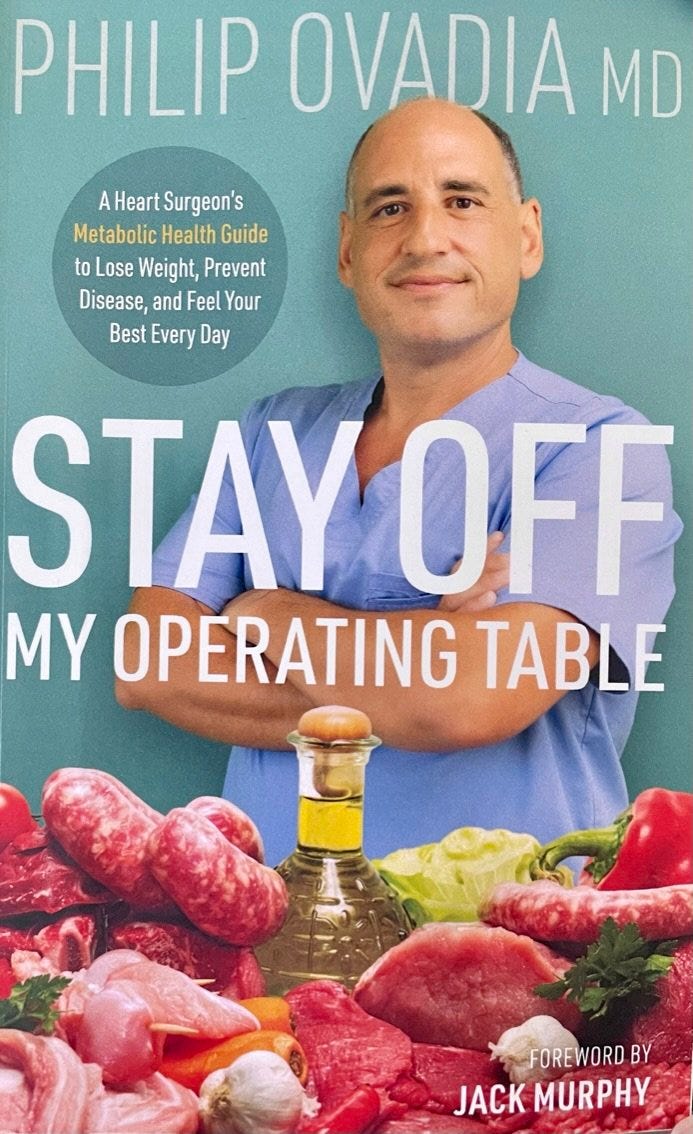 The Moral ImaginationEp. 52 Philip Ovadia MD Metabolic Health, Diet, Cholesterol, Heart Disease, and Modern MedicineIn this episode I speak with heart surgeon, Dr. Philip Ovadia MD, about metabolic health, diet, science, cholesterol, insulin resistance, the US government food pyramid, Ancel Keys and the cholesterol - saturated fat -heart disease hypothesis. We discuss medical education, health insurance, scientism, and some of the obstacles doctors and scientists face with “group think.” Dr Ovadia tells his story of how lost 100 pounds changed everything he learned about fat and food. He explains that while half of the patients who have heart attacks or heart surgery have normal levels of cholesterol, over 90% have insulin resistance. He argues that meta...2023-02-161h 36
The Moral ImaginationEp. 52 Philip Ovadia MD Metabolic Health, Diet, Cholesterol, Heart Disease, and Modern MedicineIn this episode I speak with heart surgeon, Dr. Philip Ovadia MD, about metabolic health, diet, science, cholesterol, insulin resistance, the US government food pyramid, Ancel Keys and the cholesterol - saturated fat -heart disease hypothesis. We discuss medical education, health insurance, scientism, and some of the obstacles doctors and scientists face with “group think.” Dr Ovadia tells his story of how lost 100 pounds changed everything he learned about fat and food. He explains that while half of the patients who have heart attacks or heart surgery have normal levels of cholesterol, over 90% have insulin resistance. He argues that meta...2023-02-161h 36 The Moral ImaginationEp. 52 Philip Ovadia MD Metabolic Health, Diet, Cholesterol, Heart Disease, and Modern MedicineIn this episode I speak with heart surgeon, Dr. Philip Ovadia MD, about metabolic health, diet, science, cholesterol, insulin resistance, the US government food pyramid, Ancel Keys and the cholesterol - saturated fat -heart disease hypothesis. We discuss medical education, health insurance, scientism, and some of the obstacles doctors and scientists face with “group think.” Dr Ovadia tells his story of how lost 100 pounds changed everything he learned about fat and food. He explains that while half of the patients who have heart attacks or heart surgery have normal levels of cholesterol, over 90% have insulin resistance. He argues that meta...2023-02-161h 36
The Moral ImaginationEp. 52 Philip Ovadia MD Metabolic Health, Diet, Cholesterol, Heart Disease, and Modern MedicineIn this episode I speak with heart surgeon, Dr. Philip Ovadia MD, about metabolic health, diet, science, cholesterol, insulin resistance, the US government food pyramid, Ancel Keys and the cholesterol - saturated fat -heart disease hypothesis. We discuss medical education, health insurance, scientism, and some of the obstacles doctors and scientists face with “group think.” Dr Ovadia tells his story of how lost 100 pounds changed everything he learned about fat and food. He explains that while half of the patients who have heart attacks or heart surgery have normal levels of cholesterol, over 90% have insulin resistance. He argues that meta...2023-02-161h 36 The Moral ImaginationEp. 48 Jonathan Bi: Rene Girard - Social Pressure, True and False Desires, Sacrifice, and BeliefIn this episode I speak with Jonathan Bi about the ideas of Rene Girard, social pressure, authentic and false desires, victims and scapegoats, persecution, and Girardian theories on imitation and violence. We also discuss how Girard’s work sheds light on woke capitalism, right and left totalitarianism, Max Scheler, Hannah Arendt, Alexis de Tocqueville, and more. We discuss many themes including: Christianity and Girard’s theory and the secularization and falsification of Christian values such as how humanitarianism and pacificism replace charity and peace and justice and more. Evangelical Counsels and The Rule of St. Bene...2022-12-161h 59
The Moral ImaginationEp. 48 Jonathan Bi: Rene Girard - Social Pressure, True and False Desires, Sacrifice, and BeliefIn this episode I speak with Jonathan Bi about the ideas of Rene Girard, social pressure, authentic and false desires, victims and scapegoats, persecution, and Girardian theories on imitation and violence. We also discuss how Girard’s work sheds light on woke capitalism, right and left totalitarianism, Max Scheler, Hannah Arendt, Alexis de Tocqueville, and more. We discuss many themes including: Christianity and Girard’s theory and the secularization and falsification of Christian values such as how humanitarianism and pacificism replace charity and peace and justice and more. Evangelical Counsels and The Rule of St. Bene...2022-12-161h 59 The Moral ImaginationEp. 48 Jonathan Bi: Rene Girard - Social Pressure, True and False Desires, Sacrifice, and BeliefIn this episode I speak with Jonathan Bi about the ideas of Rene Girard, social pressure, authentic and false desires, victims and scapegoats, persecution, and Girardian theories on imitation and violence. We also discuss how Girard’s work sheds light on woke capitalism, right and left totalitarianism, Max Scheler, Hannah Arendt, Alexis de Tocqueville, and more. We discuss many themes including: Christianity and Girard’s theory and the secularization and falsification of Christian values such as how humanitarianism and pacificism replace charity and peace and justice and more. Evangelical Counsels and The Rule of St. Bene...2022-12-161h 59
The Moral ImaginationEp. 48 Jonathan Bi: Rene Girard - Social Pressure, True and False Desires, Sacrifice, and BeliefIn this episode I speak with Jonathan Bi about the ideas of Rene Girard, social pressure, authentic and false desires, victims and scapegoats, persecution, and Girardian theories on imitation and violence. We also discuss how Girard’s work sheds light on woke capitalism, right and left totalitarianism, Max Scheler, Hannah Arendt, Alexis de Tocqueville, and more. We discuss many themes including: Christianity and Girard’s theory and the secularization and falsification of Christian values such as how humanitarianism and pacificism replace charity and peace and justice and more. Evangelical Counsels and The Rule of St. Bene...2022-12-161h 59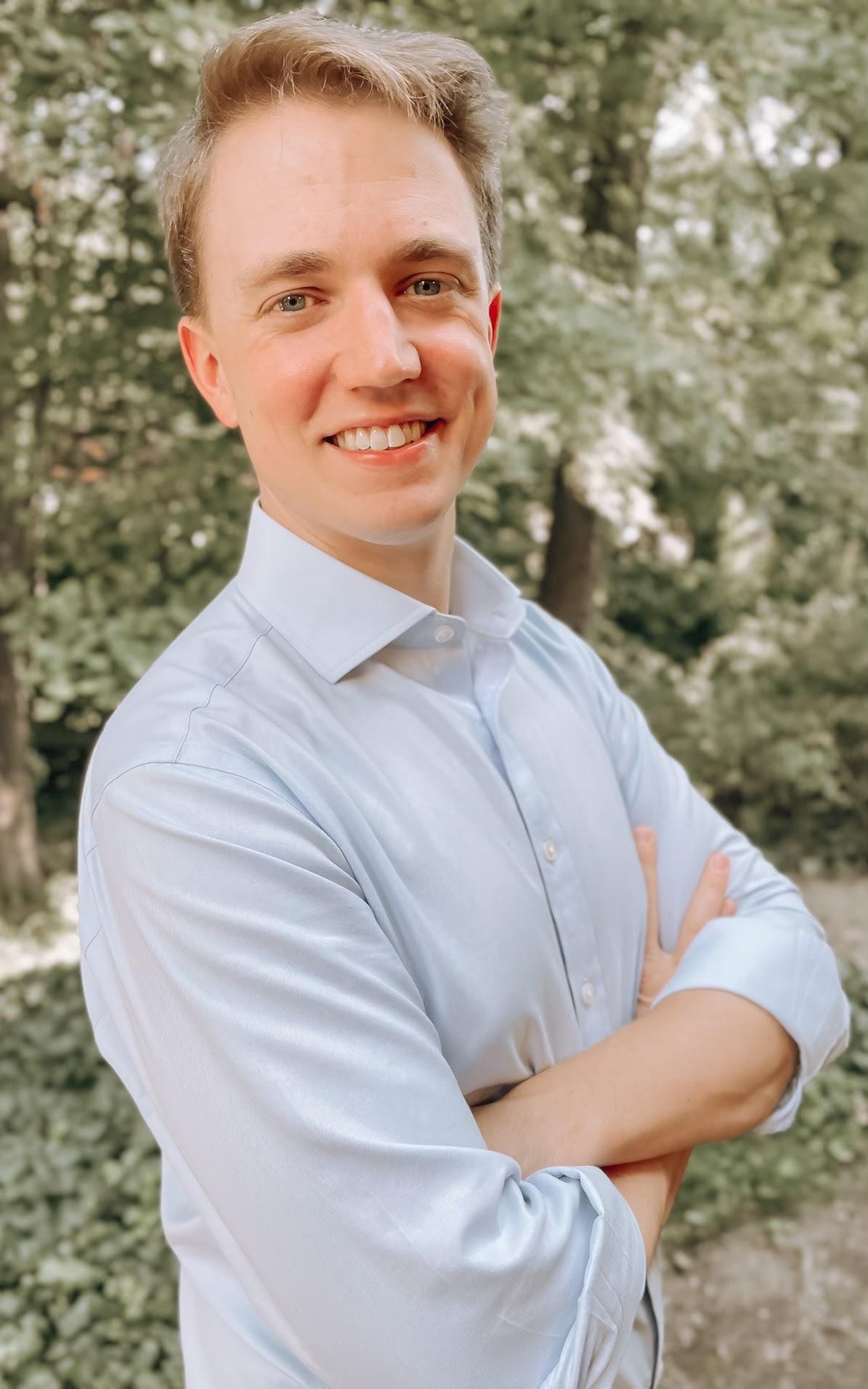 The Moral ImaginationEp. 46 Bill Rivers: Last Summer Boys A Novel about Family, Honor, and the Power of Communitypeak with Bill Rivers about this novel, Last Summer Boys. The novel is about a rural Pennsylvania family and the adventures of three boys and a cousin and set in the tumultuous summer of 1968 with the Vietnam war, the assignations of Robert Kennedy and Martin Luther King. “Summer 1968. When thirteen-year-old Jack Elliot overhears the barbershop men grousing, he devises a secret plan to keep his oldest brother, Pete, from the draft. If famous boys don’t go to war, he’ll make his brother their small town’s biggest celebrity. Jack gets unexpected help when his book-smart cousin Fr...2022-10-201h 11
The Moral ImaginationEp. 46 Bill Rivers: Last Summer Boys A Novel about Family, Honor, and the Power of Communitypeak with Bill Rivers about this novel, Last Summer Boys. The novel is about a rural Pennsylvania family and the adventures of three boys and a cousin and set in the tumultuous summer of 1968 with the Vietnam war, the assignations of Robert Kennedy and Martin Luther King. “Summer 1968. When thirteen-year-old Jack Elliot overhears the barbershop men grousing, he devises a secret plan to keep his oldest brother, Pete, from the draft. If famous boys don’t go to war, he’ll make his brother their small town’s biggest celebrity. Jack gets unexpected help when his book-smart cousin Fr...2022-10-201h 11 The Moral ImaginationEp. 46 Bill Rivers: Last Summer Boys A Novel about Family, Honor, and the Power of Communitypeak with Bill Rivers about this novel, Last Summer Boys. The novel is about a rural Pennsylvania family and the adventures of three boys and a cousin and set in the tumultuous summer of 1968 with the Vietnam war, the assignations of Robert Kennedy and Martin Luther King. “Summer 1968. When thirteen-year-old Jack Elliot overhears the barbershop men grousing, he devises a secret plan to keep his oldest brother, Pete, from the draft. If famous boys don’t go to war, he’ll make his brother their small town’s biggest celebrity. Jack gets unexpected help when his book-smart cousin Fr...2022-10-201h 11
The Moral ImaginationEp. 46 Bill Rivers: Last Summer Boys A Novel about Family, Honor, and the Power of Communitypeak with Bill Rivers about this novel, Last Summer Boys. The novel is about a rural Pennsylvania family and the adventures of three boys and a cousin and set in the tumultuous summer of 1968 with the Vietnam war, the assignations of Robert Kennedy and Martin Luther King. “Summer 1968. When thirteen-year-old Jack Elliot overhears the barbershop men grousing, he devises a secret plan to keep his oldest brother, Pete, from the draft. If famous boys don’t go to war, he’ll make his brother their small town’s biggest celebrity. Jack gets unexpected help when his book-smart cousin Fr...2022-10-201h 11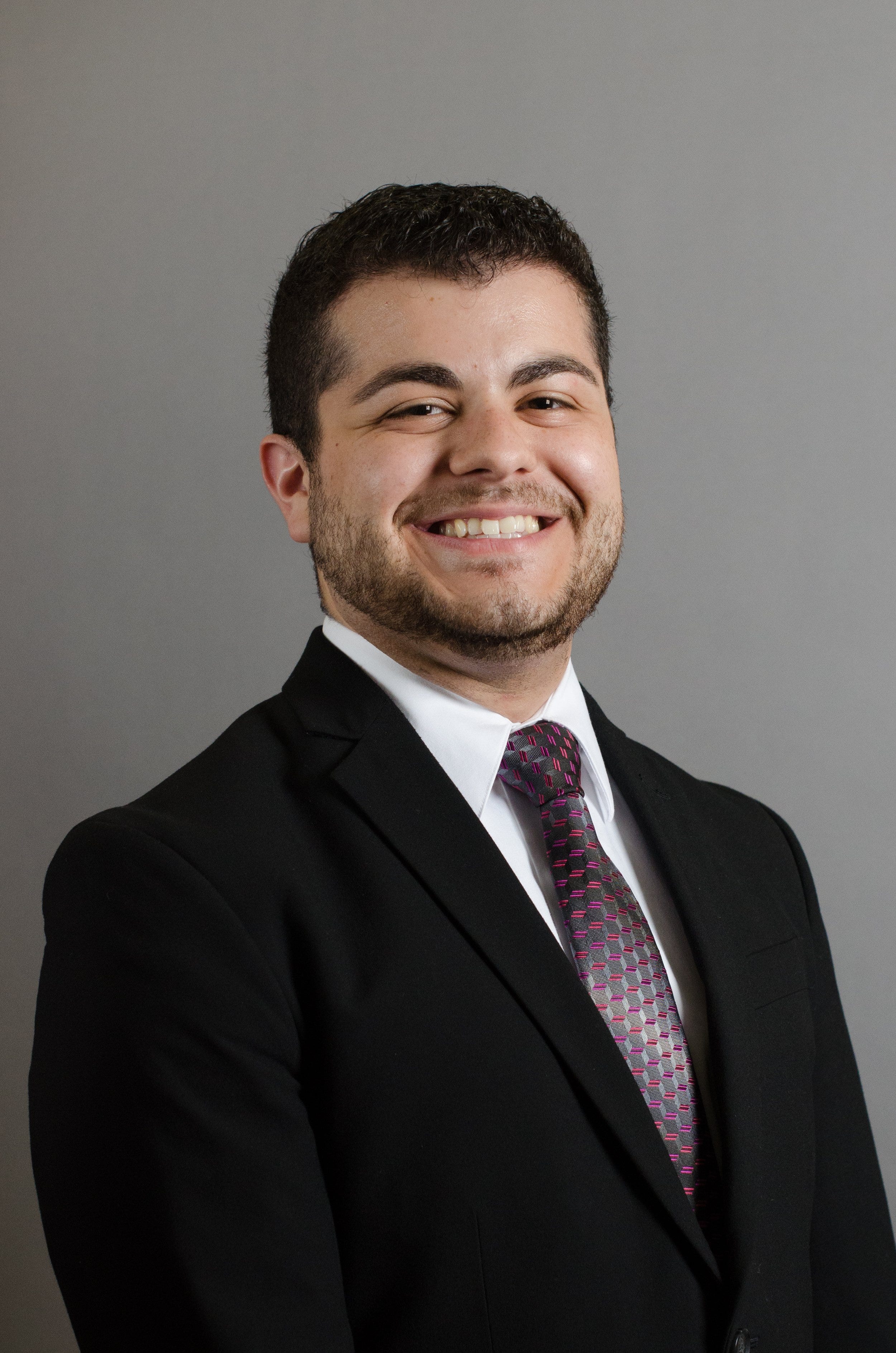 The Moral ImaginationEp. 44 Deion Kathawa: Technology, Religion, and Humanity in a Post-Human AgeIn this episode of The Moral Imagination Podcast I speak with Deion Kathawa about his essays at Public Discourse Technology and Dignity. We discuss a number of topics including digital technology social media biotech genetic engineering CRISPR post and trans-humanism transgenderism technology and power how tech effects the rich and the poor and middle class Kathawa argues that the new digital and biotechnology threaten our human in explicit and implicit ways from distraction to liquidation to degradation and that we need not only better law, but authentic religious practice, liturgy, and human friendship to resist these threats. We discuss th...2022-08-191h 45
The Moral ImaginationEp. 44 Deion Kathawa: Technology, Religion, and Humanity in a Post-Human AgeIn this episode of The Moral Imagination Podcast I speak with Deion Kathawa about his essays at Public Discourse Technology and Dignity. We discuss a number of topics including digital technology social media biotech genetic engineering CRISPR post and trans-humanism transgenderism technology and power how tech effects the rich and the poor and middle class Kathawa argues that the new digital and biotechnology threaten our human in explicit and implicit ways from distraction to liquidation to degradation and that we need not only better law, but authentic religious practice, liturgy, and human friendship to resist these threats. We discuss th...2022-08-191h 45 The Moral ImaginationEp. 44 Deion Kathawa: Technology, Religion, and Humanity in a Post-Human AgeIn this episode of The Moral Imagination Podcast I speak with Deion Kathawa about his essays at Public Discourse Technology and Dignity. We discuss a number of topics including digital technology social media biotech genetic engineering CRISPR post and trans-humanism transgenderism technology and power how tech effects the rich and the poor and middle class Kathawa argues that the new digital and biotechnology threaten our human in explicit and implicit ways from distraction to liquidation to degradation and that we need not only better law, but authentic religious practice, liturgy, and human friendship to resist these threats. We discuss th...2022-08-191h 45
The Moral ImaginationEp. 44 Deion Kathawa: Technology, Religion, and Humanity in a Post-Human AgeIn this episode of The Moral Imagination Podcast I speak with Deion Kathawa about his essays at Public Discourse Technology and Dignity. We discuss a number of topics including digital technology social media biotech genetic engineering CRISPR post and trans-humanism transgenderism technology and power how tech effects the rich and the poor and middle class Kathawa argues that the new digital and biotechnology threaten our human in explicit and implicit ways from distraction to liquidation to degradation and that we need not only better law, but authentic religious practice, liturgy, and human friendship to resist these threats. We discuss th...2022-08-191h 45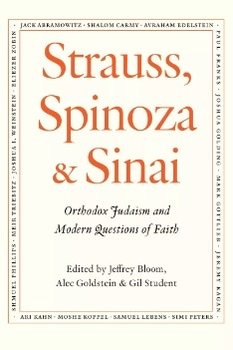 The Moral ImaginationEp. 43: Orthodox Judaism, Leo Strauss, and Baruch Spinoza’s Critique of ReligionIn this episode I speak with Jeffrey Bloom and Rabbi Jeremy Kagan about the book Spinoza, Strauss, and Sinai: Orthodox Judaism and Modern Questions of Faith published by Kodesh Press . The book is a collection of essays edited by Jeffrey Bloom, Alec Goldstein, and Gil Student. Jeffrey Bloom grew up secular, Jewish family and the idea of actually practicing Orthodox Judaism was outside of the realm of possibility. He studied at University of Chicago where he took a class with Professor Leon Kass on Genesis. (see book link below) This was the first time that he took rel...2022-07-191h 45
The Moral ImaginationEp. 43: Orthodox Judaism, Leo Strauss, and Baruch Spinoza’s Critique of ReligionIn this episode I speak with Jeffrey Bloom and Rabbi Jeremy Kagan about the book Spinoza, Strauss, and Sinai: Orthodox Judaism and Modern Questions of Faith published by Kodesh Press . The book is a collection of essays edited by Jeffrey Bloom, Alec Goldstein, and Gil Student. Jeffrey Bloom grew up secular, Jewish family and the idea of actually practicing Orthodox Judaism was outside of the realm of possibility. He studied at University of Chicago where he took a class with Professor Leon Kass on Genesis. (see book link below) This was the first time that he took rel...2022-07-191h 45 The Moral ImaginationEp. 43: Orthodox Judaism, Leo Strauss, and Baruch Spinoza’s Critique of ReligionIn this episode I speak with Jeffrey Bloom and Rabbi Jeremy Kagan about the book Spinoza, Strauss, and Sinai: Orthodox Judaism and Modern Questions of Faith published by Kodesh Press . The book is a collection of essays edited by Jeffrey Bloom, Alec Goldstein, and Gil Student. Jeffrey Bloom grew up secular, Jewish family and the idea of actually practicing Orthodox Judaism was outside of the realm of possibility. He studied at University of Chicago where he took a class with Professor Leon Kass on Genesis. (see book link below) This was the first time that he took rel...2022-07-191h 45
The Moral ImaginationEp. 43: Orthodox Judaism, Leo Strauss, and Baruch Spinoza’s Critique of ReligionIn this episode I speak with Jeffrey Bloom and Rabbi Jeremy Kagan about the book Spinoza, Strauss, and Sinai: Orthodox Judaism and Modern Questions of Faith published by Kodesh Press . The book is a collection of essays edited by Jeffrey Bloom, Alec Goldstein, and Gil Student. Jeffrey Bloom grew up secular, Jewish family and the idea of actually practicing Orthodox Judaism was outside of the realm of possibility. He studied at University of Chicago where he took a class with Professor Leon Kass on Genesis. (see book link below) This was the first time that he took rel...2022-07-191h 45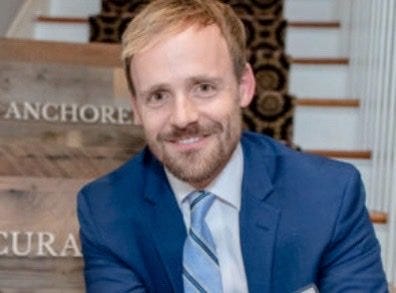 The Moral ImaginationEp. 42: Jeremy Tate: Whoever Owns the Test Owns the Curriculum: Classic Learning v. Industrial ModelIn this episode, I speak with Jeremy Tate, the founder of the Classic Learning Test about school testing, curriculum, and the classical versus industrial models of education. Jeremy argues that the current testing regime of the SAT and ACT have a tremendous influence on the curriculum taught in public and private schools. They promote a utilitarian vision of learning and drive students away from the classical Western tradition and serious reflection on what makes a good life. In response, Jeremy and his team developed the Classic Learning Test not only to be a better, more rigorous test, but to...2022-07-011h 11
The Moral ImaginationEp. 42: Jeremy Tate: Whoever Owns the Test Owns the Curriculum: Classic Learning v. Industrial ModelIn this episode, I speak with Jeremy Tate, the founder of the Classic Learning Test about school testing, curriculum, and the classical versus industrial models of education. Jeremy argues that the current testing regime of the SAT and ACT have a tremendous influence on the curriculum taught in public and private schools. They promote a utilitarian vision of learning and drive students away from the classical Western tradition and serious reflection on what makes a good life. In response, Jeremy and his team developed the Classic Learning Test not only to be a better, more rigorous test, but to...2022-07-011h 11 The Moral ImaginationEp. 42: Jeremy Tate: Whoever Owns the Test Owns the Curriculum: Classic Learning v. Industrial ModelIn this episode, I speak with Jeremy Tate, the founder of the Classic Learning Test about school testing, curriculum, and the classical versus industrial models of education. Jeremy argues that the current testing regime of the SAT and ACT have a tremendous influence on the curriculum taught in public and private schools. They promote a utilitarian vision of learning and drive students away from the classical Western tradition and serious reflection on what makes a good life. In response, Jeremy and his team developed the Classic Learning Test not only to be a better, more rigorous test, but to...2022-07-011h 11
The Moral ImaginationEp. 42: Jeremy Tate: Whoever Owns the Test Owns the Curriculum: Classic Learning v. Industrial ModelIn this episode, I speak with Jeremy Tate, the founder of the Classic Learning Test about school testing, curriculum, and the classical versus industrial models of education. Jeremy argues that the current testing regime of the SAT and ACT have a tremendous influence on the curriculum taught in public and private schools. They promote a utilitarian vision of learning and drive students away from the classical Western tradition and serious reflection on what makes a good life. In response, Jeremy and his team developed the Classic Learning Test not only to be a better, more rigorous test, but to...2022-07-011h 11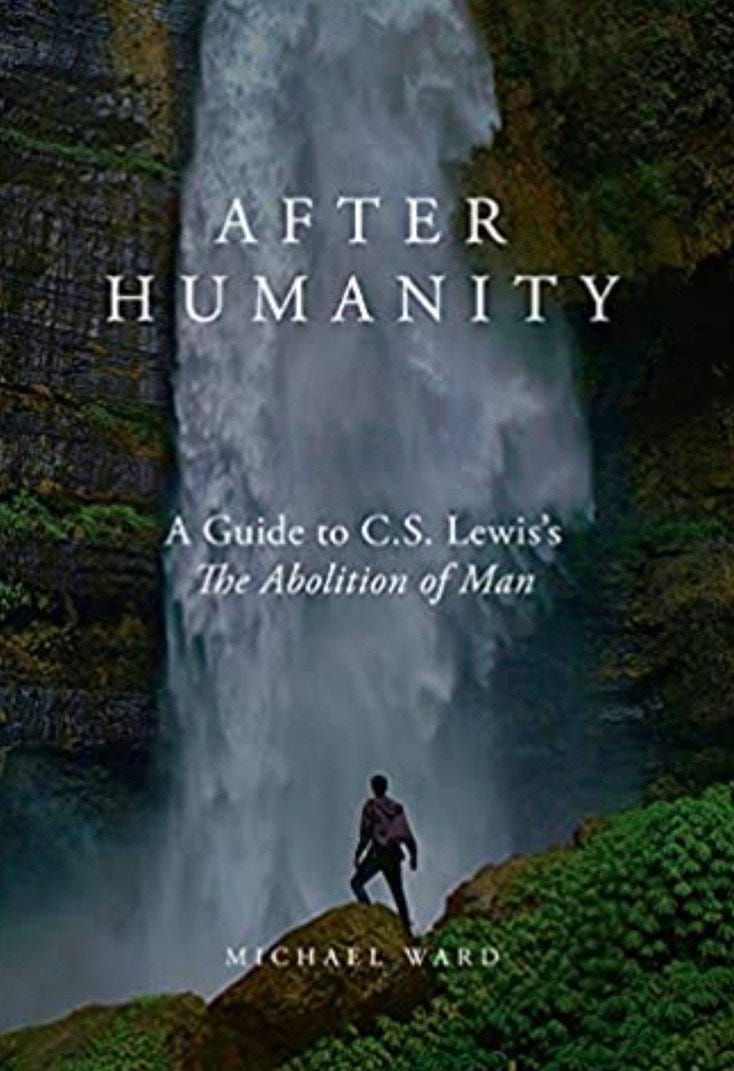 The Moral ImaginationPodcast Episode 41: Michael Ward: A Guide to C.S. Lewis’ The Abolition of ManIn this episode, I speak with Michael Ward about his book, After Humanity: A Guide to C.S. Lewis The Abolition of Man. I think The Abolition of Man is of the most important books in the twentieth century. It addresses important issues that are relevant today — from what it means to be human, reason, passion, and the emotions, to how to think about technology, power, and beauty. It’s a short book but can be a bit difficult to understand at times, and Michael Ward does a great service by going through the book line by line and expla...2022-06-071h 09
The Moral ImaginationPodcast Episode 41: Michael Ward: A Guide to C.S. Lewis’ The Abolition of ManIn this episode, I speak with Michael Ward about his book, After Humanity: A Guide to C.S. Lewis The Abolition of Man. I think The Abolition of Man is of the most important books in the twentieth century. It addresses important issues that are relevant today — from what it means to be human, reason, passion, and the emotions, to how to think about technology, power, and beauty. It’s a short book but can be a bit difficult to understand at times, and Michael Ward does a great service by going through the book line by line and expla...2022-06-071h 09 The Moral ImaginationPodcast Episode 41: Michael Ward: A Guide to C.S. Lewis’ The Abolition of ManIn this episode, I speak with Michael Ward about his book, After Humanity: A Guide to C.S. Lewis The Abolition of Man. I think The Abolition of Man is of the most important books in the twentieth century. It addresses important issues that are relevant today — from what it means to be human, reason, passion, and the emotions, to how to think about technology, power, and beauty. It’s a short book but can be a bit difficult to understand at times, and Michael Ward does a great service by going through the book line by line and expla...2022-06-071h 09
The Moral ImaginationPodcast Episode 41: Michael Ward: A Guide to C.S. Lewis’ The Abolition of ManIn this episode, I speak with Michael Ward about his book, After Humanity: A Guide to C.S. Lewis The Abolition of Man. I think The Abolition of Man is of the most important books in the twentieth century. It addresses important issues that are relevant today — from what it means to be human, reason, passion, and the emotions, to how to think about technology, power, and beauty. It’s a short book but can be a bit difficult to understand at times, and Michael Ward does a great service by going through the book line by line and expla...2022-06-071h 09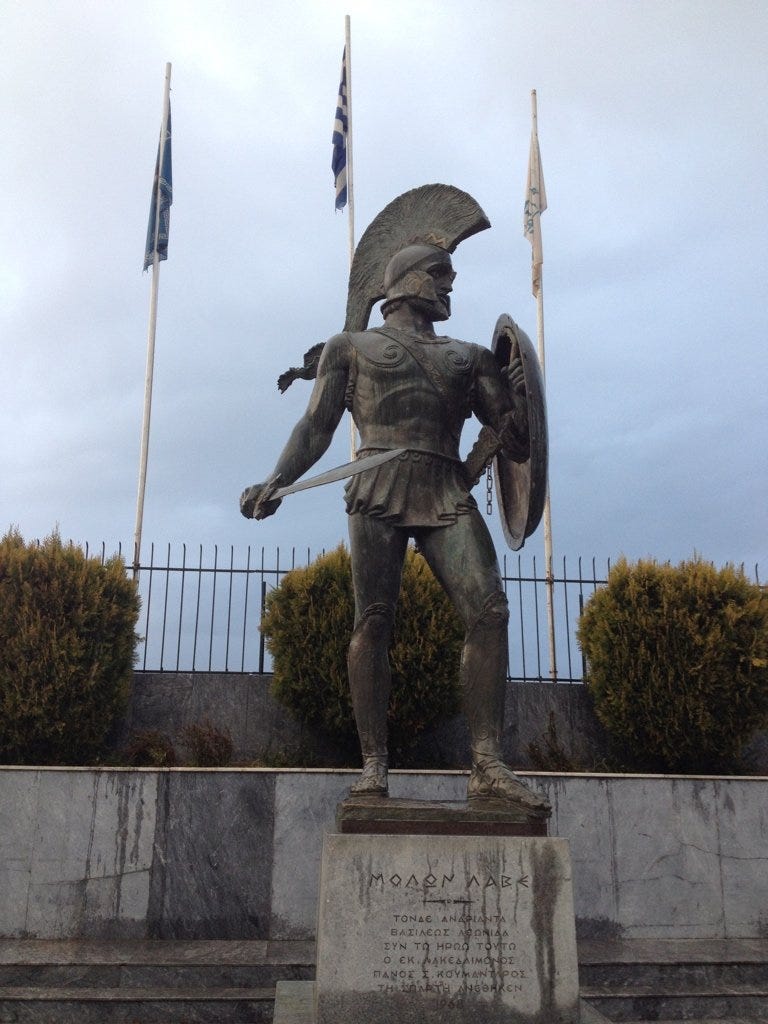 The Moral ImaginationEp. 39 Marcel Guarnizo: What is JusticeWhat is Justice? What do we owe to each other? The theme of justice is core issue of all human societies and pervades myth and philosophy. Plato’s Republic and Gorgias are reflections on justice and the right ordering of the soul and society. So is Aristotle’s Politics. The Hebrew Bible, the Tao Te Ching, the Analects of Confucius, the writings of Buddhism, and the Stoics all contain reflections on justice. C.S. Lewis notes in his appendix to the Abolition of Man that in every land and every culture there is a “Tao,” a way of being in the world...2022-04-131h 54
The Moral ImaginationEp. 39 Marcel Guarnizo: What is JusticeWhat is Justice? What do we owe to each other? The theme of justice is core issue of all human societies and pervades myth and philosophy. Plato’s Republic and Gorgias are reflections on justice and the right ordering of the soul and society. So is Aristotle’s Politics. The Hebrew Bible, the Tao Te Ching, the Analects of Confucius, the writings of Buddhism, and the Stoics all contain reflections on justice. C.S. Lewis notes in his appendix to the Abolition of Man that in every land and every culture there is a “Tao,” a way of being in the world...2022-04-131h 54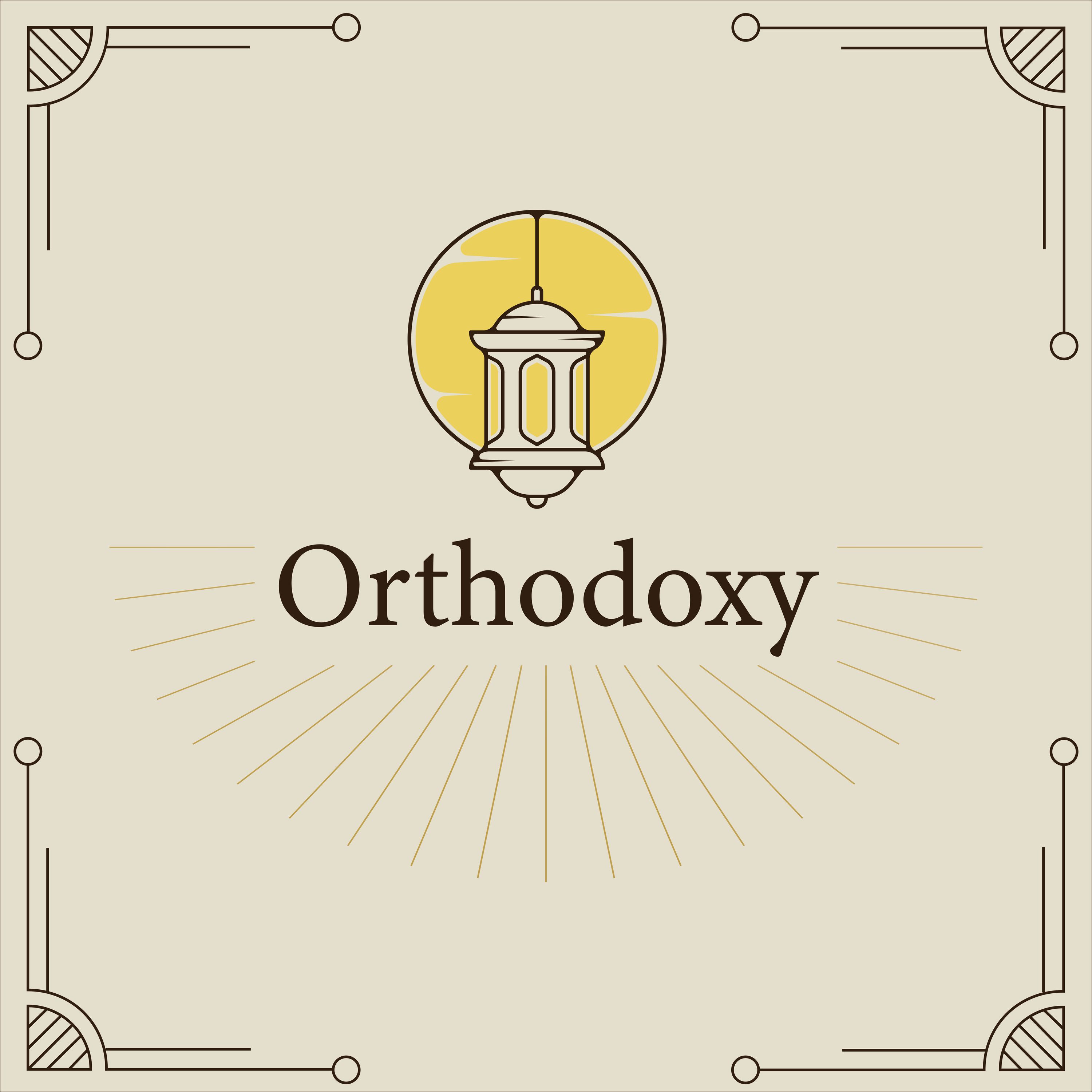 Orthodoxy#49 // What is a Christians role in the government? (ft. Michael Matheson Miller)Pastor Nic Gibson, Andy Schmitt, and Acton Institute's Michael Matheson Miller discuss how Christians should interact with the Government.Check out our new website: www.optivnetwork.comFollow us on Facebook: https://www.facebook.com/optivnetworkFollow us on Twitter: https://twitter.com/OptivNetworkEmail us at optivnetwork@gmail.com with your questions!Music: "nesting" by Birocratic (http://birocratic.lnk.to/allYL)
Sign up for my newsletter and never miss an episode: https://www.orthodoxyandorder.comFollow me on X: https://x.com/andyschmitt992022-04-101h 41
Orthodoxy#49 // What is a Christians role in the government? (ft. Michael Matheson Miller)Pastor Nic Gibson, Andy Schmitt, and Acton Institute's Michael Matheson Miller discuss how Christians should interact with the Government.Check out our new website: www.optivnetwork.comFollow us on Facebook: https://www.facebook.com/optivnetworkFollow us on Twitter: https://twitter.com/OptivNetworkEmail us at optivnetwork@gmail.com with your questions!Music: "nesting" by Birocratic (http://birocratic.lnk.to/allYL)
Sign up for my newsletter and never miss an episode: https://www.orthodoxyandorder.comFollow me on X: https://x.com/andyschmitt992022-04-101h 41 Orthodoxy#47 // What does it mean to be a person? (ft. Michael Matheson Miller)Pastor Nic Gibson, Andy Schmitt, and Acton Institute's Michael Matheson Miller discuss what it means to be a human person and how that relates to justice. Check out our new website: www.optivnetwork.com Follow us on Facebook: https://www.facebook.com/optivnetwork Follow us on Twitter: https://twitter.com/OptivNetwork Email us at optivnetwork@gmail.com with your questions! Music: "nesting" by Birocratic (http://birocratic.lnk.to/allYL)
Sign up for my newsletter and never miss a...2022-03-271h 21
Orthodoxy#47 // What does it mean to be a person? (ft. Michael Matheson Miller)Pastor Nic Gibson, Andy Schmitt, and Acton Institute's Michael Matheson Miller discuss what it means to be a human person and how that relates to justice. Check out our new website: www.optivnetwork.com Follow us on Facebook: https://www.facebook.com/optivnetwork Follow us on Twitter: https://twitter.com/OptivNetwork Email us at optivnetwork@gmail.com with your questions! Music: "nesting" by Birocratic (http://birocratic.lnk.to/allYL)
Sign up for my newsletter and never miss a...2022-03-271h 21 The Moral ImaginationEp. 38: Dr. Margarita Mooney Nicaraguan Journey: From Technocracy to Solidarity through Small Acts of LoveIn the episode, I speak with Professor Margarita Mooney about her time in Nicaragua and how these experiences shaped her scholarly work and teaching at the intersection of sociology and philosophy. Margarita tells a story of her time in Nicaragua and how a weekend trip to a political rally in a small community where she almost was kidnapped challenged her assumptions about elite education in the United States. Margarita explains how her engagement with poor women farmers and micro-entrepreneurs helped her realize the power of small acts of love and solidarity to help alleviate the problems of violence from th...2022-03-231h 05
The Moral ImaginationEp. 38: Dr. Margarita Mooney Nicaraguan Journey: From Technocracy to Solidarity through Small Acts of LoveIn the episode, I speak with Professor Margarita Mooney about her time in Nicaragua and how these experiences shaped her scholarly work and teaching at the intersection of sociology and philosophy. Margarita tells a story of her time in Nicaragua and how a weekend trip to a political rally in a small community where she almost was kidnapped challenged her assumptions about elite education in the United States. Margarita explains how her engagement with poor women farmers and micro-entrepreneurs helped her realize the power of small acts of love and solidarity to help alleviate the problems of violence from th...2022-03-231h 05 The Moral ImaginationEp. 37: James Poulos: Digital Politics & Spiritual War In this episode, I speak with James Poulos about his book, Human, Forever: The Digital Politics of Spiritual War. We discuss a wide variety of themes including technology, human memory, what it means to be an embodied person. James argues that instead of worrying about an impending crisis, we need to realize that it has already happened — Digital entities have taken over. We need to recognize this, figure out what has happened, and orient our senses and sensibilities around what technology does, how it changes us, and how we can work with and use technology to affirm our humanity. Par...2022-03-1155 min
The Moral ImaginationEp. 37: James Poulos: Digital Politics & Spiritual War In this episode, I speak with James Poulos about his book, Human, Forever: The Digital Politics of Spiritual War. We discuss a wide variety of themes including technology, human memory, what it means to be an embodied person. James argues that instead of worrying about an impending crisis, we need to realize that it has already happened — Digital entities have taken over. We need to recognize this, figure out what has happened, and orient our senses and sensibilities around what technology does, how it changes us, and how we can work with and use technology to affirm our humanity. Par...2022-03-1155 min The Moral ImaginationEp. 37: James Poulos: Digital Politics & Spiritual War In this episode, I speak with James Poulos about his book, Human, Forever: The Digital Politics of Spiritual War. We discuss a wide variety of themes including technology, human memory, what it means to be an embodied person. James argues that instead of worrying about an impending crisis, we need to realize that it has already happened — Digital entities have taken over. We need to recognize this, figure out what has happened, and orient our senses and sensibilities around what technology does, how it changes us, and how we can work with and use technology to affirm our humanity. Par...2022-03-1155 min
The Moral ImaginationEp. 37: James Poulos: Digital Politics & Spiritual War In this episode, I speak with James Poulos about his book, Human, Forever: The Digital Politics of Spiritual War. We discuss a wide variety of themes including technology, human memory, what it means to be an embodied person. James argues that instead of worrying about an impending crisis, we need to realize that it has already happened — Digital entities have taken over. We need to recognize this, figure out what has happened, and orient our senses and sensibilities around what technology does, how it changes us, and how we can work with and use technology to affirm our humanity. Par...2022-03-1155 min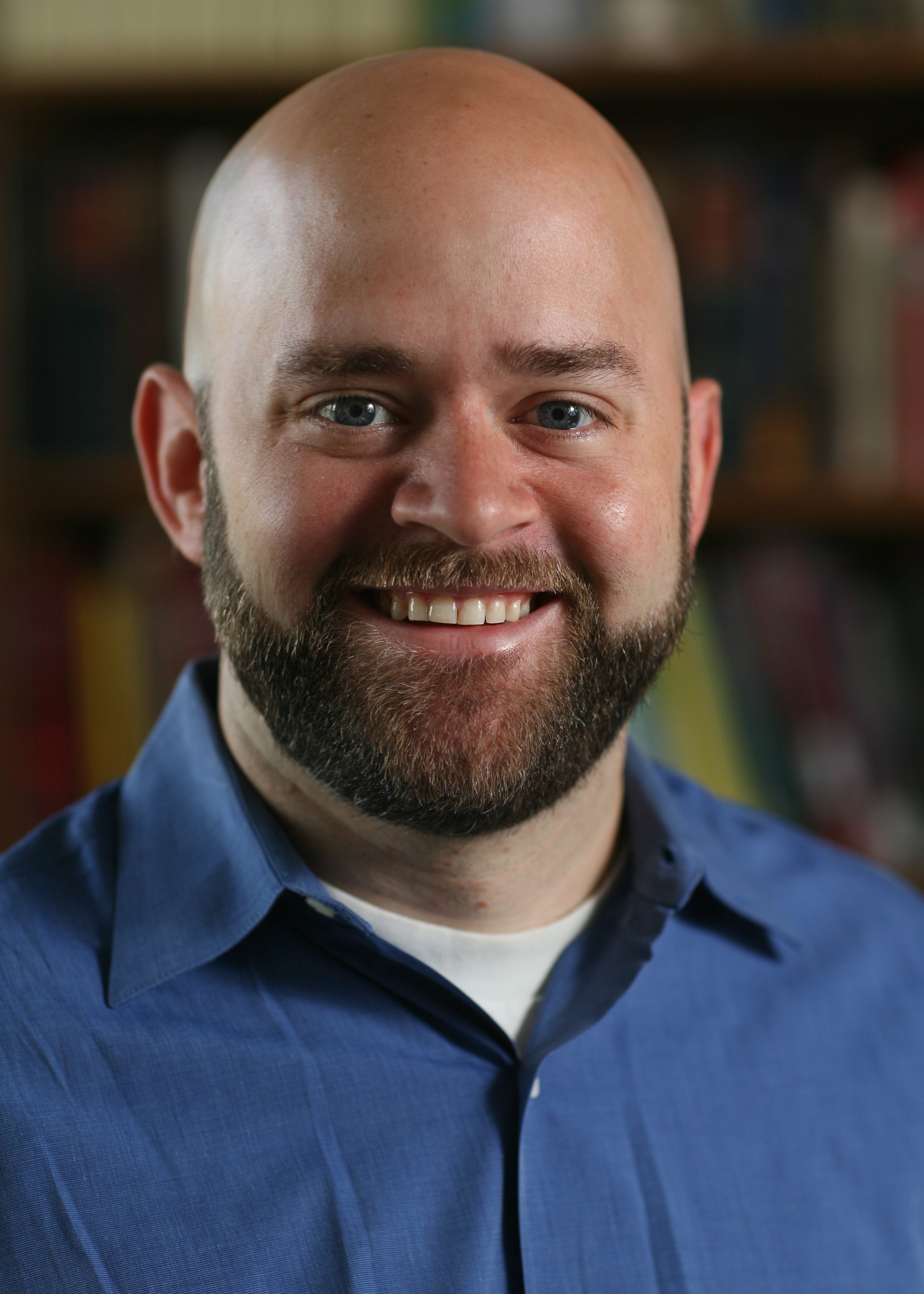 The Moral ImaginationEp. 36: Carter Snead: Law, Power, and Bioethics: What it Means to Be Human,In this episode, I speak with Professor Carter Snead about his book, What it Means to be Human: The Case for the Body in Public Bioethics. We discuss how the dominant view of the human person forgets the body and ignores our social nature, and how this plays out in law which further shapes our moral lives and cultural attitudes. Snead argues that contemporary law in bioethics around issues like abortion, euthanasia, and IVF is actually applied philosophy of the person that favors the strong over the vulnerable and dependent. We discuss how the dominant...2021-09-011h 52
The Moral ImaginationEp. 36: Carter Snead: Law, Power, and Bioethics: What it Means to Be Human,In this episode, I speak with Professor Carter Snead about his book, What it Means to be Human: The Case for the Body in Public Bioethics. We discuss how the dominant view of the human person forgets the body and ignores our social nature, and how this plays out in law which further shapes our moral lives and cultural attitudes. Snead argues that contemporary law in bioethics around issues like abortion, euthanasia, and IVF is actually applied philosophy of the person that favors the strong over the vulnerable and dependent. We discuss how the dominant...2021-09-011h 52 The Moral ImaginationEp. 36: Carter Snead: Law, Power, and Bioethics: What it Means to Be Human,In this episode, I speak with Professor Carter Snead about his book, What it Means to be Human: The Case for the Body in Public Bioethics. We discuss how the dominant view of the human person forgets the body and ignores our social nature, and how this plays out in law which further shapes our moral lives and cultural attitudes. Snead argues that contemporary law in bioethics around issues like abortion, euthanasia, and IVF is actually applied philosophy of the person that favors the strong over the vulnerable and dependent. We discuss how the dominant...2021-09-011h 52
The Moral ImaginationEp. 36: Carter Snead: Law, Power, and Bioethics: What it Means to Be Human,In this episode, I speak with Professor Carter Snead about his book, What it Means to be Human: The Case for the Body in Public Bioethics. We discuss how the dominant view of the human person forgets the body and ignores our social nature, and how this plays out in law which further shapes our moral lives and cultural attitudes. Snead argues that contemporary law in bioethics around issues like abortion, euthanasia, and IVF is actually applied philosophy of the person that favors the strong over the vulnerable and dependent. We discuss how the dominant...2021-09-011h 52 The Moral ImaginationEp. 35: Jessica Hooten Wilson, Ph.D.: Literature and TotalitarianismIn this episode, I speak with Professor Jessica Hooten Wilson about her writing and research on literature and totalitarianism. We discuss how both violence and entertainment and distraction are used a tools of state control. We discuss Fahrenheit 451 by Ray Bradbury, some of the writings of Alexander Solzhenitsyn, and Julia Alvarez's novel, In the Time of Butterflies, about life under the Trujillo dictatorship in the Dominican Republic. We also discuss Victor Frankl, Josef Pieper, Michael O'Brien, Tocqueville's idea of "soft despotism", and Neil Postman's argument in In Amusing Ourselves to Death about Huxley's Brave New World and George Orwell's 1984...2021-08-231h 07
The Moral ImaginationEp. 35: Jessica Hooten Wilson, Ph.D.: Literature and TotalitarianismIn this episode, I speak with Professor Jessica Hooten Wilson about her writing and research on literature and totalitarianism. We discuss how both violence and entertainment and distraction are used a tools of state control. We discuss Fahrenheit 451 by Ray Bradbury, some of the writings of Alexander Solzhenitsyn, and Julia Alvarez's novel, In the Time of Butterflies, about life under the Trujillo dictatorship in the Dominican Republic. We also discuss Victor Frankl, Josef Pieper, Michael O'Brien, Tocqueville's idea of "soft despotism", and Neil Postman's argument in In Amusing Ourselves to Death about Huxley's Brave New World and George Orwell's 1984...2021-08-231h 07 The Moral ImaginationEp. 35: Jessica Hooten Wilson, Ph.D.: Literature and TotalitarianismIn this episode, I speak with Professor Jessica Hooten Wilson about her writing and research on literature and totalitarianism. We discuss how both violence and entertainment and distraction are used a tools of state control. We discuss Fahrenheit 451 by Ray Bradbury, some of the writings of Alexander Solzhenitsyn, and Julia Alvarez's novel, In the Time of Butterflies, about life under the Trujillo dictatorship in the Dominican Republic. We also discuss Victor Frankl, Josef Pieper, Michael O'Brien, Tocqueville's idea of "soft despotism", and Neil Postman's argument in In Amusing Ourselves to Death about Huxley's Brave New World and George Orwell's 1984...2021-08-231h 07
The Moral ImaginationEp. 35: Jessica Hooten Wilson, Ph.D.: Literature and TotalitarianismIn this episode, I speak with Professor Jessica Hooten Wilson about her writing and research on literature and totalitarianism. We discuss how both violence and entertainment and distraction are used a tools of state control. We discuss Fahrenheit 451 by Ray Bradbury, some of the writings of Alexander Solzhenitsyn, and Julia Alvarez's novel, In the Time of Butterflies, about life under the Trujillo dictatorship in the Dominican Republic. We also discuss Victor Frankl, Josef Pieper, Michael O'Brien, Tocqueville's idea of "soft despotism", and Neil Postman's argument in In Amusing Ourselves to Death about Huxley's Brave New World and George Orwell's 1984...2021-08-231h 07 The Moral ImaginationEp. 34: Heidi White: What is Classical Education?What is education for? In the episode, I speak with Heidi White about classical education and human flourishing. We discuss why classical education is important to pass down a cultural memory and why reading good literature and classic texts matters on multiple levels. We discuss the difference between a modern, contemporary education and a classical vision of education, the relationship between classical education and religious education, and how STEM and classical education can relate together. We talk about literature, poetry, science, and the idea of poetic knowledge. We also discuss some of the critiques, challenges, and weaknesses of classical...2021-08-041h 31
The Moral ImaginationEp. 34: Heidi White: What is Classical Education?What is education for? In the episode, I speak with Heidi White about classical education and human flourishing. We discuss why classical education is important to pass down a cultural memory and why reading good literature and classic texts matters on multiple levels. We discuss the difference between a modern, contemporary education and a classical vision of education, the relationship between classical education and religious education, and how STEM and classical education can relate together. We talk about literature, poetry, science, and the idea of poetic knowledge. We also discuss some of the critiques, challenges, and weaknesses of classical...2021-08-041h 31 The Moral ImaginationEp. 34: Heidi White: What is Classical Education?What is education for? In the episode, I speak with Heidi White about classical education and human flourishing. We discuss why classical education is important to pass down a cultural memory and why reading good literature and classic texts matters on multiple levels. We discuss the difference between a modern, contemporary education and a classical vision of education, the relationship between classical education and religious education, and how STEM and classical education can relate together. We talk about literature, poetry, science, and the idea of poetic knowledge. We also discuss some of the critiques, challenges, and weaknesses of classical...2021-08-041h 31
The Moral ImaginationEp. 34: Heidi White: What is Classical Education?What is education for? In the episode, I speak with Heidi White about classical education and human flourishing. We discuss why classical education is important to pass down a cultural memory and why reading good literature and classic texts matters on multiple levels. We discuss the difference between a modern, contemporary education and a classical vision of education, the relationship between classical education and religious education, and how STEM and classical education can relate together. We talk about literature, poetry, science, and the idea of poetic knowledge. We also discuss some of the critiques, challenges, and weaknesses of classical...2021-08-041h 31 The Moral ImaginationEp. 33: Elizabeth Corey, Ph.D.: Life Beyond PoliticsIn this episode, I speak with Elizabeth Corey about life beyond politics, friendship, learning, and the work of Michael Oakeshott. We discuss a wide range of issues, including rationalism and politics, the value of the reading of classic texts, and Oakeshott's idea of different modes of engaging with the world: the practical, scientific, historical, and poetic. We discuss Eric Voegelin, Russell Kirk, Gertrude Himmelfarb, Rod Dreher, what it means to be a conservative, and some recent developments in the conservative political movement. We talk about the importance of carving out spaces outside the political sphere, including building...2021-07-221h 44
The Moral ImaginationEp. 33: Elizabeth Corey, Ph.D.: Life Beyond PoliticsIn this episode, I speak with Elizabeth Corey about life beyond politics, friendship, learning, and the work of Michael Oakeshott. We discuss a wide range of issues, including rationalism and politics, the value of the reading of classic texts, and Oakeshott's idea of different modes of engaging with the world: the practical, scientific, historical, and poetic. We discuss Eric Voegelin, Russell Kirk, Gertrude Himmelfarb, Rod Dreher, what it means to be a conservative, and some recent developments in the conservative political movement. We talk about the importance of carving out spaces outside the political sphere, including building...2021-07-221h 44 The Moral ImaginationEp. 33: Elizabeth Corey, Ph.D.: Life Beyond PoliticsIn this episode, I speak with Elizabeth Corey about life beyond politics, friendship, learning, and the work of Michael Oakeshott. We discuss a wide range of issues, including rationalism and politics, the value of the reading of classic texts, and Oakeshott's idea of different modes of engaging with the world: the practical, scientific, historical, and poetic. We discuss Eric Voegelin, Russell Kirk, Gertrude Himmelfarb, Rod Dreher, what it means to be a conservative, and some recent developments in the conservative political movement. We talk about the importance of carving out spaces outside the political sphere, including building...2021-07-221h 44
The Moral ImaginationEp. 33: Elizabeth Corey, Ph.D.: Life Beyond PoliticsIn this episode, I speak with Elizabeth Corey about life beyond politics, friendship, learning, and the work of Michael Oakeshott. We discuss a wide range of issues, including rationalism and politics, the value of the reading of classic texts, and Oakeshott's idea of different modes of engaging with the world: the practical, scientific, historical, and poetic. We discuss Eric Voegelin, Russell Kirk, Gertrude Himmelfarb, Rod Dreher, what it means to be a conservative, and some recent developments in the conservative political movement. We talk about the importance of carving out spaces outside the political sphere, including building...2021-07-221h 44 The Moral ImaginationEp. 32: James Madden, Ph.D.: The Recovery of the Self: Embodied and Embedded PersonsIn this episode, I speak with James Madden about his book, "Mind, Matter, and Nature", about philosophy of mind, and what it means to be an embodied and an embedded person. We discuss how the loss of a sense of ourselves as embodied and embedded leads to a loss of contact with the world and ultimately to nihilism. We discuss competing visions of the person—materialism, dualism and Aristotle's and St. Thomas Aquinas' idea of Hylomorphism—a union of form and matter—and what it means for a person to lead a good life. We talk about a number of iss...2021-07-141h 39
The Moral ImaginationEp. 32: James Madden, Ph.D.: The Recovery of the Self: Embodied and Embedded PersonsIn this episode, I speak with James Madden about his book, "Mind, Matter, and Nature", about philosophy of mind, and what it means to be an embodied and an embedded person. We discuss how the loss of a sense of ourselves as embodied and embedded leads to a loss of contact with the world and ultimately to nihilism. We discuss competing visions of the person—materialism, dualism and Aristotle's and St. Thomas Aquinas' idea of Hylomorphism—a union of form and matter—and what it means for a person to lead a good life. We talk about a number of iss...2021-07-141h 39 The Moral ImaginationEp. 32: James Madden, Ph.D.: The Recovery of the Self: Embodied and Embedded PersonsIn this episode, I speak with James Madden about his book, "Mind, Matter, and Nature", about philosophy of mind, and what it means to be an embodied and an embedded person. We discuss how the loss of a sense of ourselves as embodied and embedded leads to a loss of contact with the world and ultimately to nihilism. We discuss competing visions of the person—materialism, dualism and Aristotle's and St. Thomas Aquinas' idea of Hylomorphism—a union of form and matter—and what it means for a person to lead a good life. We talk about a number of iss...2021-07-141h 39
The Moral ImaginationEp. 32: James Madden, Ph.D.: The Recovery of the Self: Embodied and Embedded PersonsIn this episode, I speak with James Madden about his book, "Mind, Matter, and Nature", about philosophy of mind, and what it means to be an embodied and an embedded person. We discuss how the loss of a sense of ourselves as embodied and embedded leads to a loss of contact with the world and ultimately to nihilism. We discuss competing visions of the person—materialism, dualism and Aristotle's and St. Thomas Aquinas' idea of Hylomorphism—a union of form and matter—and what it means for a person to lead a good life. We talk about a number of iss...2021-07-141h 39 The Moral ImaginationEp. 31: Titus Techera and Flagg Taylor: Communism and Film: Deceit, Privacy, Art, and the Effects of Tyranny on the SoulIn this episode, I speak with Titus Techera and Flagg Taylor about several films that address communism and the effects of tyranny and deceit on the human soul. We discuss themes of courage, freedom, privacy, shame, the purpose and role of art, and how we can become comprised over time by assenting to falsehood. We discuss how these films portray the challenges for regular people and how the experience of living under communism has lessons for us today. We also discuss the question of art and its relation to beauty, truth, and morality. Films we discuss include...2021-03-302h 14
The Moral ImaginationEp. 31: Titus Techera and Flagg Taylor: Communism and Film: Deceit, Privacy, Art, and the Effects of Tyranny on the SoulIn this episode, I speak with Titus Techera and Flagg Taylor about several films that address communism and the effects of tyranny and deceit on the human soul. We discuss themes of courage, freedom, privacy, shame, the purpose and role of art, and how we can become comprised over time by assenting to falsehood. We discuss how these films portray the challenges for regular people and how the experience of living under communism has lessons for us today. We also discuss the question of art and its relation to beauty, truth, and morality. Films we discuss include...2021-03-302h 14 The Moral ImaginationEp. 31: Titus Techera and Flagg Taylor: Communism and Film: Deceit, Privacy, Art, and the Effects of Tyranny on the SoulIn this episode, I speak with Titus Techera and Flagg Taylor about several films that address communism and the effects of tyranny and deceit on the human soul. We discuss themes of courage, freedom, privacy, shame, the purpose and role of art, and how we can become comprised over time by assenting to falsehood. We discuss how these films portray the challenges for regular people and how the experience of living under communism has lessons for us today. We also discuss the question of art and its relation to beauty, truth, and morality. Films we discuss include...2021-03-302h 14
The Moral ImaginationEp. 31: Titus Techera and Flagg Taylor: Communism and Film: Deceit, Privacy, Art, and the Effects of Tyranny on the SoulIn this episode, I speak with Titus Techera and Flagg Taylor about several films that address communism and the effects of tyranny and deceit on the human soul. We discuss themes of courage, freedom, privacy, shame, the purpose and role of art, and how we can become comprised over time by assenting to falsehood. We discuss how these films portray the challenges for regular people and how the experience of living under communism has lessons for us today. We also discuss the question of art and its relation to beauty, truth, and morality. Films we discuss include...2021-03-302h 14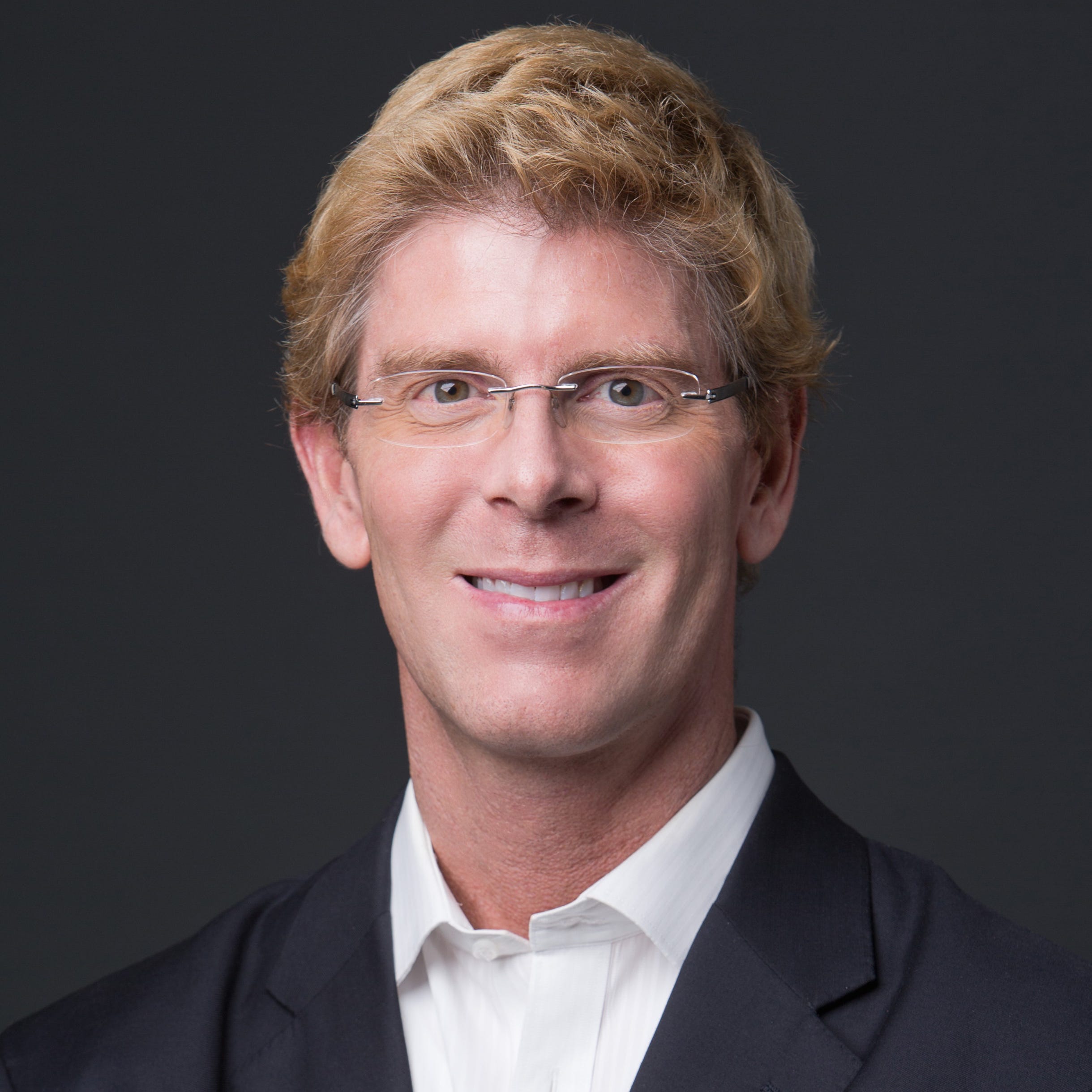 The Moral ImaginationEp. 30: Jay Richards: Fasting, Prayer, and Ketosis: How Modern Science and Ancient Christian Tradition Support a Fasting Lifestyle & Help Us Put Food in its Proper PlaceIn this episode, I speak with Jay Richards about his book "Eat, Fast, Feast: Heal Your Body While Feeding your Soul". We discuss how modern science and ancient Christian tradition support a fasting lifestyle for healthy living and help us put food in its proper place. We discuss a number of issues including fasting, prayer, the ketogenic diet, and metabolic flexibility. We discuss the benefits of fat, meat, whole foods, and why we need to avoid processed foods, sugar, and how this all relates both our physical and spiritual health. Jay notes that while fasting...2021-03-181h 30
The Moral ImaginationEp. 30: Jay Richards: Fasting, Prayer, and Ketosis: How Modern Science and Ancient Christian Tradition Support a Fasting Lifestyle & Help Us Put Food in its Proper PlaceIn this episode, I speak with Jay Richards about his book "Eat, Fast, Feast: Heal Your Body While Feeding your Soul". We discuss how modern science and ancient Christian tradition support a fasting lifestyle for healthy living and help us put food in its proper place. We discuss a number of issues including fasting, prayer, the ketogenic diet, and metabolic flexibility. We discuss the benefits of fat, meat, whole foods, and why we need to avoid processed foods, sugar, and how this all relates both our physical and spiritual health. Jay notes that while fasting...2021-03-181h 30 The Moral ImaginationEp. 30: Jay Richards: Fasting, Prayer, and Ketosis: How Modern Science and Ancient Christian Tradition Support a Fasting Lifestyle & Help Us Put Food in its Proper PlaceIn this episode, I speak with Jay Richards about his book "Eat, Fast, Feast: Heal Your Body While Feeding your Soul". We discuss how modern science and ancient Christian tradition support a fasting lifestyle for healthy living and help us put food in its proper place. We discuss a number of issues including fasting, prayer, the ketogenic diet, and metabolic flexibility. We discuss the benefits of fat, meat, whole foods, and why we need to avoid processed foods, sugar, and how this all relates both our physical and spiritual health. Jay notes that while fasting...2021-03-181h 30
The Moral ImaginationEp. 30: Jay Richards: Fasting, Prayer, and Ketosis: How Modern Science and Ancient Christian Tradition Support a Fasting Lifestyle & Help Us Put Food in its Proper PlaceIn this episode, I speak with Jay Richards about his book "Eat, Fast, Feast: Heal Your Body While Feeding your Soul". We discuss how modern science and ancient Christian tradition support a fasting lifestyle for healthy living and help us put food in its proper place. We discuss a number of issues including fasting, prayer, the ketogenic diet, and metabolic flexibility. We discuss the benefits of fat, meat, whole foods, and why we need to avoid processed foods, sugar, and how this all relates both our physical and spiritual health. Jay notes that while fasting...2021-03-181h 30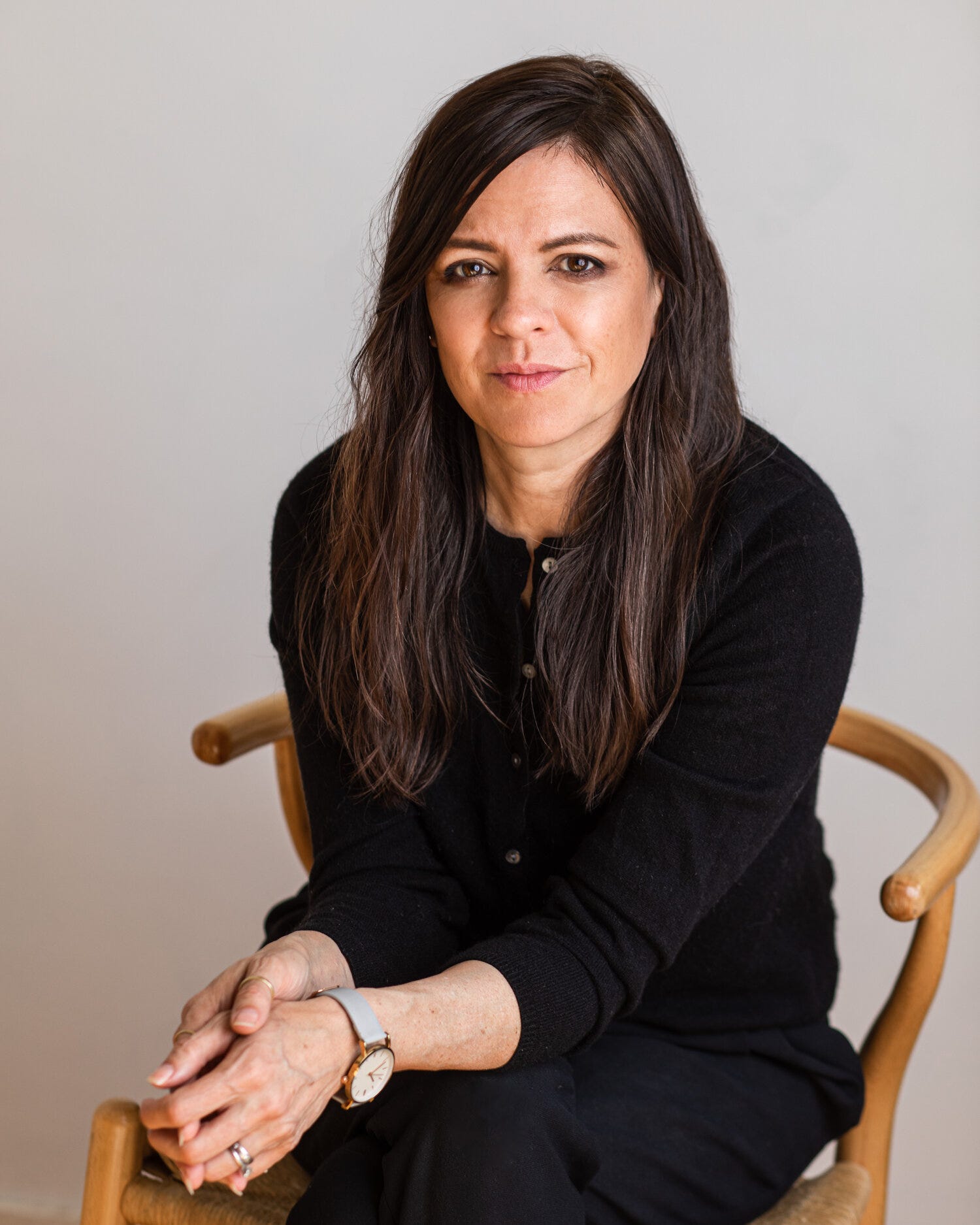 The Moral ImaginationEp. 29: Noelle Mering: Awake Not Woke: A Personalist Alternative to Thinking About Social JusticeIn this episode, I speak with Noelle Mering about her new book, Awake Not Woke: A Christian Response to the Cult of Progressive Ideology. Noelle analyzes the concept of "woke" and identifies four characteristics of the contemporary social justice movement and how they influence the way we think about justice and society: 1. Group over Person 2. Will over Reason 3. Power over Authority 4. The Crowd and the Victim We discuss the intellectual history of the social justice movement from Hegel and Marx, Frankfurt School thinkers like Adorno and Marcuse, and contemporary proponents...2021-03-061h 51
The Moral ImaginationEp. 29: Noelle Mering: Awake Not Woke: A Personalist Alternative to Thinking About Social JusticeIn this episode, I speak with Noelle Mering about her new book, Awake Not Woke: A Christian Response to the Cult of Progressive Ideology. Noelle analyzes the concept of "woke" and identifies four characteristics of the contemporary social justice movement and how they influence the way we think about justice and society: 1. Group over Person 2. Will over Reason 3. Power over Authority 4. The Crowd and the Victim We discuss the intellectual history of the social justice movement from Hegel and Marx, Frankfurt School thinkers like Adorno and Marcuse, and contemporary proponents...2021-03-061h 51 The Moral ImaginationEp. 29: Noelle Mering: Awake Not Woke: A Personalist Alternative to Thinking About Social JusticeIn this episode, I speak with Noelle Mering about her new book, Awake Not Woke: A Christian Response to the Cult of Progressive Ideology. Noelle analyzes the concept of "woke" and identifies four characteristics of the contemporary social justice movement and how they influence the way we think about justice and society: 1. Group over Person 2. Will over Reason 3. Power over Authority 4. The Crowd and the Victim We discuss the intellectual history of the social justice movement from Hegel and Marx, Frankfurt School thinkers like Adorno and Marcuse, and contemporary proponents...2021-03-061h 51
The Moral ImaginationEp. 29: Noelle Mering: Awake Not Woke: A Personalist Alternative to Thinking About Social JusticeIn this episode, I speak with Noelle Mering about her new book, Awake Not Woke: A Christian Response to the Cult of Progressive Ideology. Noelle analyzes the concept of "woke" and identifies four characteristics of the contemporary social justice movement and how they influence the way we think about justice and society: 1. Group over Person 2. Will over Reason 3. Power over Authority 4. The Crowd and the Victim We discuss the intellectual history of the social justice movement from Hegel and Marx, Frankfurt School thinkers like Adorno and Marcuse, and contemporary proponents...2021-03-061h 51 The Moral ImaginationEp. 28: George Gilder: Crypto vs Google: Blockchain, Cryptocurrency, Decentralized Computing, and Life After Google and Big DataIn this episode, I talk with George Gilder about "Life After Google: The Fall of Big Data & The Rise of the Blockchain Economy" and his newest book on Gaming AI. We discuss blockchain technologies, cryptocurrency, Bitcoin, and decentralized computing. We also discuss artificial intelligence, information theory, neuroscience, and the problems of materialism and closed systems. Gilder argues that the Google system of the world with its focus on free services, centralized servers, and big data will be replaced by blockchain and decentralized computing that takes security, money, and privacy seriously. We discuss the philosophical underpinnings of the Google System...2021-02-251h 20
The Moral ImaginationEp. 28: George Gilder: Crypto vs Google: Blockchain, Cryptocurrency, Decentralized Computing, and Life After Google and Big DataIn this episode, I talk with George Gilder about "Life After Google: The Fall of Big Data & The Rise of the Blockchain Economy" and his newest book on Gaming AI. We discuss blockchain technologies, cryptocurrency, Bitcoin, and decentralized computing. We also discuss artificial intelligence, information theory, neuroscience, and the problems of materialism and closed systems. Gilder argues that the Google system of the world with its focus on free services, centralized servers, and big data will be replaced by blockchain and decentralized computing that takes security, money, and privacy seriously. We discuss the philosophical underpinnings of the Google System...2021-02-251h 20 The Moral ImaginationEp. 28: George Gilder: Crypto vs Google: Blockchain, Cryptocurrency, Decentralized Computing, and Life After Google and Big DataIn this episode, I talk with George Gilder about "Life After Google: The Fall of Big Data & The Rise of the Blockchain Economy" and his newest book on Gaming AI. We discuss blockchain technologies, cryptocurrency, Bitcoin, and decentralized computing. We also discuss artificial intelligence, information theory, neuroscience, and the problems of materialism and closed systems. Gilder argues that the Google system of the world with its focus on free services, centralized servers, and big data will be replaced by blockchain and decentralized computing that takes security, money, and privacy seriously. We discuss the philosophical underpinnings of the Google System...2021-02-251h 20
The Moral ImaginationEp. 28: George Gilder: Crypto vs Google: Blockchain, Cryptocurrency, Decentralized Computing, and Life After Google and Big DataIn this episode, I talk with George Gilder about "Life After Google: The Fall of Big Data & The Rise of the Blockchain Economy" and his newest book on Gaming AI. We discuss blockchain technologies, cryptocurrency, Bitcoin, and decentralized computing. We also discuss artificial intelligence, information theory, neuroscience, and the problems of materialism and closed systems. Gilder argues that the Google system of the world with its focus on free services, centralized servers, and big data will be replaced by blockchain and decentralized computing that takes security, money, and privacy seriously. We discuss the philosophical underpinnings of the Google System...2021-02-251h 20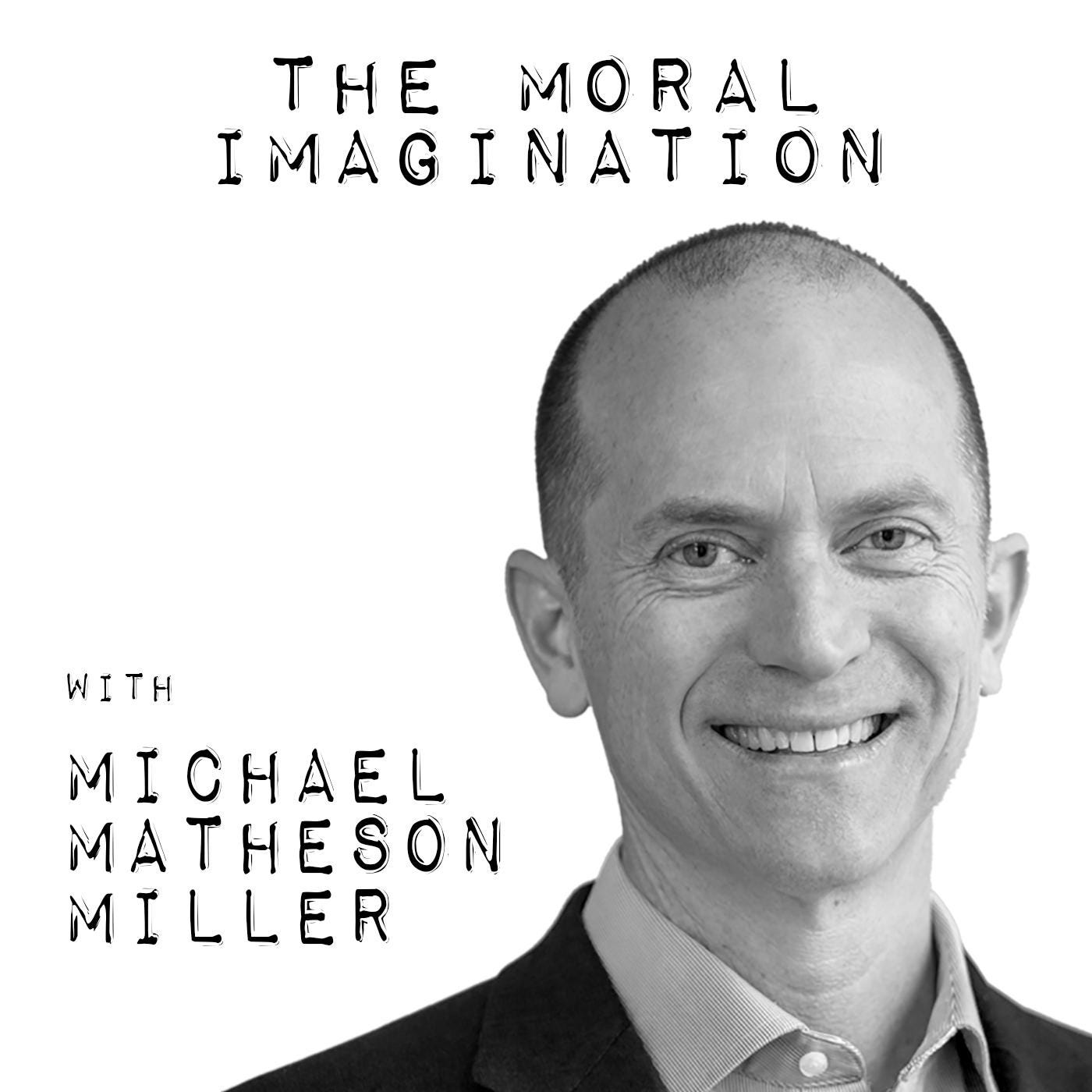 The Moral ImaginationEp. 27: Decentralization, Localism, and Mutual Aid: The Thought of Robert NisbetThis episode features a lecture of mine from 2011 on the thought of Robert Nisbet. Nisbet is an important figure and his thought is very relevant to our time. I discuss the main themes of his work on community, authority, social change, and more. Visit https://www.themoralimagination.com/episodes/michael-matheson-miller-2-nisbet for show notes and resources. Get full access to The Moral Imagination - Michael Matheson Miller at www.themoralimagination.com/subscribe2021-02-191h 01
The Moral ImaginationEp. 27: Decentralization, Localism, and Mutual Aid: The Thought of Robert NisbetThis episode features a lecture of mine from 2011 on the thought of Robert Nisbet. Nisbet is an important figure and his thought is very relevant to our time. I discuss the main themes of his work on community, authority, social change, and more. Visit https://www.themoralimagination.com/episodes/michael-matheson-miller-2-nisbet for show notes and resources. Get full access to The Moral Imagination - Michael Matheson Miller at www.themoralimagination.com/subscribe2021-02-191h 01 The Moral ImaginationEp. 27: Decentralization, Localism, and Mutual Aid: The Thought of Robert NisbetThis episode features a lecture of mine from 2011 on the thought of Robert Nisbet. Nisbet is an important figure and his thought is very relevant to our time. I discuss the main themes of his work on community, authority, social change, and more. Visit https://www.themoralimagination.com/episodes/michael-matheson-miller-2-nisbet for show notes and resources. Get full access to The Moral Imagination - Michael Matheson Miller at www.themoralimagination.com/subscribe2021-02-191h 01
The Moral ImaginationEp. 27: Decentralization, Localism, and Mutual Aid: The Thought of Robert NisbetThis episode features a lecture of mine from 2011 on the thought of Robert Nisbet. Nisbet is an important figure and his thought is very relevant to our time. I discuss the main themes of his work on community, authority, social change, and more. Visit https://www.themoralimagination.com/episodes/michael-matheson-miller-2-nisbet for show notes and resources. Get full access to The Moral Imagination - Michael Matheson Miller at www.themoralimagination.com/subscribe2021-02-191h 01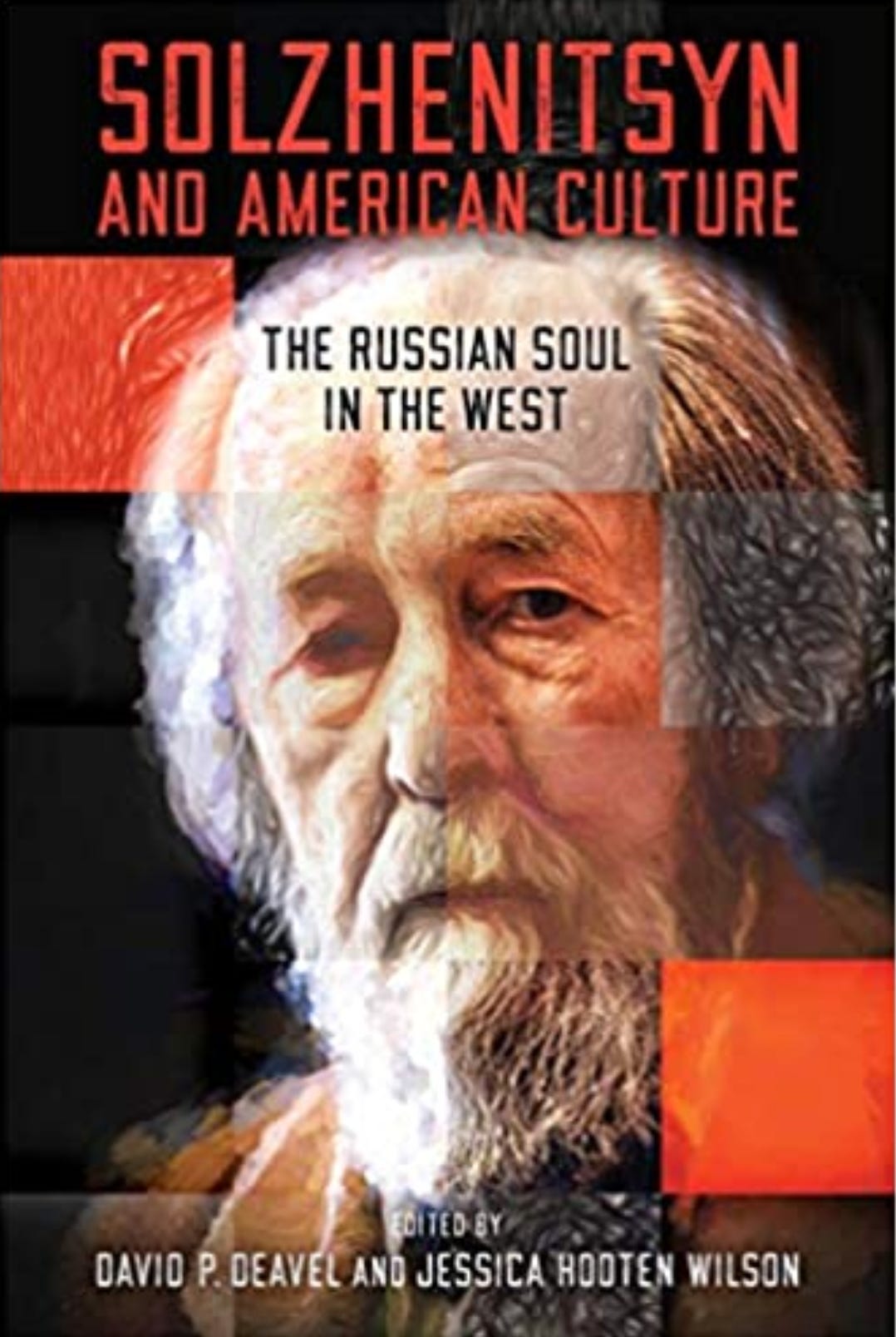 The Moral ImaginationEp. 26: David Deavel Ph.D: What Happiness are We Pursuing? Solzhenitsyn and American CultureA British journalist asked Alexander Solzhenitsyn: can free people desire to be slaves? He answered Yes. The West is "full of such people". In this episode, I speak with David Deavel about the book he co-edited with Jessica Hooten Wilson, "Solzhensityn and American Culture: The Russian soul in the West". We discuss how some of the key themes of Solzhenitsyn apply to our contemporary life, including a critique of materialism, the attraction to modern stoicism, and how it can become infected with utilitarianism and narcissism. We discuss the affirmation of being and how this relates to suffering...2021-02-051h 32
The Moral ImaginationEp. 26: David Deavel Ph.D: What Happiness are We Pursuing? Solzhenitsyn and American CultureA British journalist asked Alexander Solzhenitsyn: can free people desire to be slaves? He answered Yes. The West is "full of such people". In this episode, I speak with David Deavel about the book he co-edited with Jessica Hooten Wilson, "Solzhensityn and American Culture: The Russian soul in the West". We discuss how some of the key themes of Solzhenitsyn apply to our contemporary life, including a critique of materialism, the attraction to modern stoicism, and how it can become infected with utilitarianism and narcissism. We discuss the affirmation of being and how this relates to suffering...2021-02-051h 32 The Moral ImaginationEp. 26: David Deavel Ph.D: What Happiness are We Pursuing? Solzhenitsyn and American CultureA British journalist asked Alexander Solzhenitsyn: can free people desire to be slaves? He answered Yes. The West is "full of such people". In this episode, I speak with David Deavel about the book he co-edited with Jessica Hooten Wilson, "Solzhensityn and American Culture: The Russian soul in the West". We discuss how some of the key themes of Solzhenitsyn apply to our contemporary life, including a critique of materialism, the attraction to modern stoicism, and how it can become infected with utilitarianism and narcissism. We discuss the affirmation of being and how this relates to suffering...2021-02-051h 32
The Moral ImaginationEp. 26: David Deavel Ph.D: What Happiness are We Pursuing? Solzhenitsyn and American CultureA British journalist asked Alexander Solzhenitsyn: can free people desire to be slaves? He answered Yes. The West is "full of such people". In this episode, I speak with David Deavel about the book he co-edited with Jessica Hooten Wilson, "Solzhensityn and American Culture: The Russian soul in the West". We discuss how some of the key themes of Solzhenitsyn apply to our contemporary life, including a critique of materialism, the attraction to modern stoicism, and how it can become infected with utilitarianism and narcissism. We discuss the affirmation of being and how this relates to suffering...2021-02-051h 32 The Moral ImaginationEp. 25: David Clayton: Beauty and the CosmosWhat is beauty? Does it have an objective character, or is it merely subjective and in the eye of the beholder? How do we experience beauty, and how do we communicate it to others. In this episode, I discuss the nature of beauty with David Clayton, a painter, iconographer, and author. We discuss the role of consensus and tradition, classical art, contemporary gallery art, popular and folk art, and sacred liturgy. We discuss key characteristics of beauty including integrity, harmony, proportion, and clarity and the connection to mathematics and the cosmos. David explains musical octaves and ratios...2021-01-281h 43
The Moral ImaginationEp. 25: David Clayton: Beauty and the CosmosWhat is beauty? Does it have an objective character, or is it merely subjective and in the eye of the beholder? How do we experience beauty, and how do we communicate it to others. In this episode, I discuss the nature of beauty with David Clayton, a painter, iconographer, and author. We discuss the role of consensus and tradition, classical art, contemporary gallery art, popular and folk art, and sacred liturgy. We discuss key characteristics of beauty including integrity, harmony, proportion, and clarity and the connection to mathematics and the cosmos. David explains musical octaves and ratios...2021-01-281h 43 The Moral ImaginationEp. 25: David Clayton: Beauty and the CosmosWhat is beauty? Does it have an objective character, or is it merely subjective and in the eye of the beholder? How do we experience beauty, and how do we communicate it to others. In this episode, I discuss the nature of beauty with David Clayton, a painter, iconographer, and author. We discuss the role of consensus and tradition, classical art, contemporary gallery art, popular and folk art, and sacred liturgy. We discuss key characteristics of beauty including integrity, harmony, proportion, and clarity and the connection to mathematics and the cosmos. David explains musical octaves and ratios...2021-01-281h 43
The Moral ImaginationEp. 25: David Clayton: Beauty and the CosmosWhat is beauty? Does it have an objective character, or is it merely subjective and in the eye of the beholder? How do we experience beauty, and how do we communicate it to others. In this episode, I discuss the nature of beauty with David Clayton, a painter, iconographer, and author. We discuss the role of consensus and tradition, classical art, contemporary gallery art, popular and folk art, and sacred liturgy. We discuss key characteristics of beauty including integrity, harmony, proportion, and clarity and the connection to mathematics and the cosmos. David explains musical octaves and ratios...2021-01-281h 43 The Moral ImaginationEp. 24: Andreas Widmer: Principled Entrepreneurship: Why Business is Always PersonalIn the episode, I speak with Andreas Widmer about his work on principled entrepreneurship. Andreas argues that many of the challenges we are seeing in business and commerce today can be addressed by seeing business and entrepreneurship as a moral enterprise focused on the human person. We discuss Widmer's five principles for how businesses should be run, as well as a path to become not just successful, but socially beneficial. Visit https://www.themoralimagination.com/episodes/andreas-widmer for show notes and resources. Get full access to The Moral Imagination - Michael Matheson Miller at...2021-01-221h 20
The Moral ImaginationEp. 24: Andreas Widmer: Principled Entrepreneurship: Why Business is Always PersonalIn the episode, I speak with Andreas Widmer about his work on principled entrepreneurship. Andreas argues that many of the challenges we are seeing in business and commerce today can be addressed by seeing business and entrepreneurship as a moral enterprise focused on the human person. We discuss Widmer's five principles for how businesses should be run, as well as a path to become not just successful, but socially beneficial. Visit https://www.themoralimagination.com/episodes/andreas-widmer for show notes and resources. Get full access to The Moral Imagination - Michael Matheson Miller at...2021-01-221h 20 The Moral ImaginationEp. 24: Andreas Widmer: Principled Entrepreneurship: Why Business is Always PersonalIn the episode, I speak with Andreas Widmer about his work on principled entrepreneurship. Andreas argues that many of the challenges we are seeing in business and commerce today can be addressed by seeing business and entrepreneurship as a moral enterprise focused on the human person. We discuss Widmer's five principles for how businesses should be run, as well as a path to become not just successful, but socially beneficial. Visit https://www.themoralimagination.com/episodes/andreas-widmer for show notes and resources. Get full access to The Moral Imagination - Michael Matheson Miller at...2021-01-221h 20
The Moral ImaginationEp. 24: Andreas Widmer: Principled Entrepreneurship: Why Business is Always PersonalIn the episode, I speak with Andreas Widmer about his work on principled entrepreneurship. Andreas argues that many of the challenges we are seeing in business and commerce today can be addressed by seeing business and entrepreneurship as a moral enterprise focused on the human person. We discuss Widmer's five principles for how businesses should be run, as well as a path to become not just successful, but socially beneficial. Visit https://www.themoralimagination.com/episodes/andreas-widmer for show notes and resources. Get full access to The Moral Imagination - Michael Matheson Miller at...2021-01-221h 20 The Impact Junkie Show5. Michael Matheson Miller: Director & Producer of Poverty Inc.Behind the scenes with Michael Matheson Miller, Director and Producer of the award-winning documentary, Poverty, Inc. (previously on Netflix and currently on Amazon Prime) on The IMPACTJUNKIE Show. Hosted by Philip Harding, CEO of IJ, and Adrian Hildebrand, IJ Producer.
Learn more here: https://www.povertyinc.org/
Learn more about Michael Miller: http://michaelmathesonmiller.com/
Want to get more involved in fighting poverty around the world?
Join here: www.impactjunkie.co/2021-01-181h 13
The Impact Junkie Show5. Michael Matheson Miller: Director & Producer of Poverty Inc.Behind the scenes with Michael Matheson Miller, Director and Producer of the award-winning documentary, Poverty, Inc. (previously on Netflix and currently on Amazon Prime) on The IMPACTJUNKIE Show. Hosted by Philip Harding, CEO of IJ, and Adrian Hildebrand, IJ Producer.
Learn more here: https://www.povertyinc.org/
Learn more about Michael Miller: http://michaelmathesonmiller.com/
Want to get more involved in fighting poverty around the world?
Join here: www.impactjunkie.co/2021-01-181h 13 The Moral ImaginationEp. 23: Flagg Taylor Ph.D: Living in Truth: Vaclav Havel on Existential Dissent & the Re-discovery of ConscienceIn this episode, I speak with Flagg Taylor about the writing and life of Vaclav Havel. We discuss his essays, plays, and other works. We also discuss Havel's idea of dissent as living in the truth. Dissent for Havel is not primarily political, but existential dissent from ideology, politicization of life, and consumerism. Visit https://www.themoralimagination.com/episodes/flagg-taylor for show notes and resources. Get full access to The Moral Imagination - Michael Matheson Miller at www.themoralimagination.com/subscribe2021-01-141h 50
The Moral ImaginationEp. 23: Flagg Taylor Ph.D: Living in Truth: Vaclav Havel on Existential Dissent & the Re-discovery of ConscienceIn this episode, I speak with Flagg Taylor about the writing and life of Vaclav Havel. We discuss his essays, plays, and other works. We also discuss Havel's idea of dissent as living in the truth. Dissent for Havel is not primarily political, but existential dissent from ideology, politicization of life, and consumerism. Visit https://www.themoralimagination.com/episodes/flagg-taylor for show notes and resources. Get full access to The Moral Imagination - Michael Matheson Miller at www.themoralimagination.com/subscribe2021-01-141h 50 The Moral ImaginationEp. 23: Flagg Taylor Ph.D: Living in Truth: Vaclav Havel on Existential Dissent & the Re-discovery of ConscienceIn this episode, I speak with Flagg Taylor about the writing and life of Vaclav Havel. We discuss his essays, plays, and other works. We also discuss Havel's idea of dissent as living in the truth. Dissent for Havel is not primarily political, but existential dissent from ideology, politicization of life, and consumerism. Visit https://www.themoralimagination.com/episodes/flagg-taylor for show notes and resources. Get full access to The Moral Imagination - Michael Matheson Miller at www.themoralimagination.com/subscribe2021-01-141h 50
The Moral ImaginationEp. 23: Flagg Taylor Ph.D: Living in Truth: Vaclav Havel on Existential Dissent & the Re-discovery of ConscienceIn this episode, I speak with Flagg Taylor about the writing and life of Vaclav Havel. We discuss his essays, plays, and other works. We also discuss Havel's idea of dissent as living in the truth. Dissent for Havel is not primarily political, but existential dissent from ideology, politicization of life, and consumerism. Visit https://www.themoralimagination.com/episodes/flagg-taylor for show notes and resources. Get full access to The Moral Imagination - Michael Matheson Miller at www.themoralimagination.com/subscribe2021-01-141h 50 The Moral ImaginationEp. 22: Luke Sheahan: Suppressing Dissent: Why Freedom of Association and Decentralization Matter for Liberty, Community, Innovation, and Human FlourishingAlexis de Tocqueville wrote that the tyrant doesn't care if you love him, as long as you don't love one another. In this episode, I speak with Luke Sheahan about his book, "Why Associations Matter: The case for First Amendment Pluralism". Free associations are essential for political liberty, human flourishing, and for genuine community; but Sheahan argues that recent judicial decisions are increasingly subsuming freedom of association and assembly into speech rights. Free speech is essential for political liberty, but it's not sufficient -- It works in tandem with the right of association...2021-01-061h 24
The Moral ImaginationEp. 22: Luke Sheahan: Suppressing Dissent: Why Freedom of Association and Decentralization Matter for Liberty, Community, Innovation, and Human FlourishingAlexis de Tocqueville wrote that the tyrant doesn't care if you love him, as long as you don't love one another. In this episode, I speak with Luke Sheahan about his book, "Why Associations Matter: The case for First Amendment Pluralism". Free associations are essential for political liberty, human flourishing, and for genuine community; but Sheahan argues that recent judicial decisions are increasingly subsuming freedom of association and assembly into speech rights. Free speech is essential for political liberty, but it's not sufficient -- It works in tandem with the right of association...2021-01-061h 24 The Moral ImaginationEp. 22: Luke Sheahan: Suppressing Dissent: Why Freedom of Association and Decentralization Matter for Liberty, Community, Innovation, and Human FlourishingAlexis de Tocqueville wrote that the tyrant doesn't care if you love him, as long as you don't love one another. In this episode, I speak with Luke Sheahan about his book, "Why Associations Matter: The case for First Amendment Pluralism". Free associations are essential for political liberty, human flourishing, and for genuine community; but Sheahan argues that recent judicial decisions are increasingly subsuming freedom of association and assembly into speech rights. Free speech is essential for political liberty, but it's not sufficient -- It works in tandem with the right of association...2021-01-061h 24
The Moral ImaginationEp. 22: Luke Sheahan: Suppressing Dissent: Why Freedom of Association and Decentralization Matter for Liberty, Community, Innovation, and Human FlourishingAlexis de Tocqueville wrote that the tyrant doesn't care if you love him, as long as you don't love one another. In this episode, I speak with Luke Sheahan about his book, "Why Associations Matter: The case for First Amendment Pluralism". Free associations are essential for political liberty, human flourishing, and for genuine community; but Sheahan argues that recent judicial decisions are increasingly subsuming freedom of association and assembly into speech rights. Free speech is essential for political liberty, but it's not sufficient -- It works in tandem with the right of association...2021-01-061h 24 The Moral ImaginationEp. 21: Luke Burgis: The Economy of Desire: Rene Girard on Commerce and our Everyday LifeIn this episode, I speak with Luke Burgis about Rene Girard, the mimetic cycle, imitation, desire, and scapegoating, and how these things play out in business, commerce and everyday life. We discuss his forthcoming book, Wanting: The Power of Mimetic Desire in Everyday Life. Themes include how are desires our shaped by others, the leveling of desire through social media, the problem of scapegoating including not only scapegoating of the innocent, but how the the guilty be scapegoated to distract attention from other guilty parties. We also discuss positive and negative mimesis, and a number of writers and entrepreneurs...2020-12-171h 12
The Moral ImaginationEp. 21: Luke Burgis: The Economy of Desire: Rene Girard on Commerce and our Everyday LifeIn this episode, I speak with Luke Burgis about Rene Girard, the mimetic cycle, imitation, desire, and scapegoating, and how these things play out in business, commerce and everyday life. We discuss his forthcoming book, Wanting: The Power of Mimetic Desire in Everyday Life. Themes include how are desires our shaped by others, the leveling of desire through social media, the problem of scapegoating including not only scapegoating of the innocent, but how the the guilty be scapegoated to distract attention from other guilty parties. We also discuss positive and negative mimesis, and a number of writers and entrepreneurs...2020-12-171h 12 The Moral ImaginationEp. 21: Luke Burgis: The Economy of Desire: Rene Girard on Commerce and our Everyday LifeIn this episode, I speak with Luke Burgis about Rene Girard, the mimetic cycle, imitation, desire, and scapegoating, and how these things play out in business, commerce and everyday life. We discuss his forthcoming book, Wanting: The Power of Mimetic Desire in Everyday Life. Themes include how are desires our shaped by others, the leveling of desire through social media, the problem of scapegoating including not only scapegoating of the innocent, but how the the guilty be scapegoated to distract attention from other guilty parties. We also discuss positive and negative mimesis, and a number of writers and entrepreneurs...2020-12-171h 12
The Moral ImaginationEp. 21: Luke Burgis: The Economy of Desire: Rene Girard on Commerce and our Everyday LifeIn this episode, I speak with Luke Burgis about Rene Girard, the mimetic cycle, imitation, desire, and scapegoating, and how these things play out in business, commerce and everyday life. We discuss his forthcoming book, Wanting: The Power of Mimetic Desire in Everyday Life. Themes include how are desires our shaped by others, the leveling of desire through social media, the problem of scapegoating including not only scapegoating of the innocent, but how the the guilty be scapegoated to distract attention from other guilty parties. We also discuss positive and negative mimesis, and a number of writers and entrepreneurs...2020-12-171h 12 The Moral ImaginationEp. 20: What is the Moral Imagination? + 15 Ways to Build it and Recover Our HumanityWhat is the moral imagination? Why is it important? In this episode, I discuss the concept of the moral imagination and 15 ways to develop it. I discuss the origin of the term in Edmund Burke's critique of the French Revolution and his worry that the reductionist Enlightenment view of reason would lead to what C.S. Lewis called "the abolition of man." It would diminish our fundamental human experiences--love, joy, hope, friendship, justice, compassion, mercy, grief, and forgiveness--and undermine the dignity of the person. I discuss a number of thinkers, including Gertrude Himmelfarb on tradition, Russell Kirk, Joseph Pieper...2020-12-101h 02
The Moral ImaginationEp. 20: What is the Moral Imagination? + 15 Ways to Build it and Recover Our HumanityWhat is the moral imagination? Why is it important? In this episode, I discuss the concept of the moral imagination and 15 ways to develop it. I discuss the origin of the term in Edmund Burke's critique of the French Revolution and his worry that the reductionist Enlightenment view of reason would lead to what C.S. Lewis called "the abolition of man." It would diminish our fundamental human experiences--love, joy, hope, friendship, justice, compassion, mercy, grief, and forgiveness--and undermine the dignity of the person. I discuss a number of thinkers, including Gertrude Himmelfarb on tradition, Russell Kirk, Joseph Pieper...2020-12-101h 02 The Moral ImaginationEp. 20: What is the Moral Imagination? + 15 Ways to Build it and Recover Our HumanityWhat is the moral imagination? Why is it important? In this episode, I discuss the concept of the moral imagination and 15 ways to develop it. I discuss the origin of the term in Edmund Burke's critique of the French Revolution and his worry that the reductionist Enlightenment view of reason would lead to what C.S. Lewis called "the abolition of man." It would diminish our fundamental human experiences--love, joy, hope, friendship, justice, compassion, mercy, grief, and forgiveness--and undermine the dignity of the person. I discuss a number of thinkers, including Gertrude Himmelfarb on tradition, Russell Kirk, Joseph Pieper...2020-12-101h 02
The Moral ImaginationEp. 20: What is the Moral Imagination? + 15 Ways to Build it and Recover Our HumanityWhat is the moral imagination? Why is it important? In this episode, I discuss the concept of the moral imagination and 15 ways to develop it. I discuss the origin of the term in Edmund Burke's critique of the French Revolution and his worry that the reductionist Enlightenment view of reason would lead to what C.S. Lewis called "the abolition of man." It would diminish our fundamental human experiences--love, joy, hope, friendship, justice, compassion, mercy, grief, and forgiveness--and undermine the dignity of the person. I discuss a number of thinkers, including Gertrude Himmelfarb on tradition, Russell Kirk, Joseph Pieper...2020-12-101h 02 The Moral ImaginationEp. 19: Carrie Gress, Ph.D: Theology of Home: Family, Motherhood and the Alternative to Dominant FeminismIn this episode, I speak with the Carrie Gress about her book "Theology of Home". We discuss themes of the value of homemaking, the hearth, family, motherhood, and some of her critiques of dominant feminism. Carrie is a philosopher, an entrepreneur, a prolific writer, and the mother of five children that she homeschools. She is the online editor of the woman's magazine "Theology of Home". She has appeared on Fox, BBC, and EWTN. She has lived and worked professionally in Washington, DC and Rome, Italy, and her work has been translated into nine languages. Carrie is the author of...2020-12-0556 min
The Moral ImaginationEp. 19: Carrie Gress, Ph.D: Theology of Home: Family, Motherhood and the Alternative to Dominant FeminismIn this episode, I speak with the Carrie Gress about her book "Theology of Home". We discuss themes of the value of homemaking, the hearth, family, motherhood, and some of her critiques of dominant feminism. Carrie is a philosopher, an entrepreneur, a prolific writer, and the mother of five children that she homeschools. She is the online editor of the woman's magazine "Theology of Home". She has appeared on Fox, BBC, and EWTN. She has lived and worked professionally in Washington, DC and Rome, Italy, and her work has been translated into nine languages. Carrie is the author of...2020-12-0556 min The Moral ImaginationEp. 19: Carrie Gress, Ph.D: Theology of Home: Family, Motherhood and the Alternative to Dominant FeminismIn this episode, I speak with the Carrie Gress about her book "Theology of Home". We discuss themes of the value of homemaking, the hearth, family, motherhood, and some of her critiques of dominant feminism. Carrie is a philosopher, an entrepreneur, a prolific writer, and the mother of five children that she homeschools. She is the online editor of the woman's magazine "Theology of Home". She has appeared on Fox, BBC, and EWTN. She has lived and worked professionally in Washington, DC and Rome, Italy, and her work has been translated into nine languages. Carrie is the author of...2020-12-0556 min
The Moral ImaginationEp. 19: Carrie Gress, Ph.D: Theology of Home: Family, Motherhood and the Alternative to Dominant FeminismIn this episode, I speak with the Carrie Gress about her book "Theology of Home". We discuss themes of the value of homemaking, the hearth, family, motherhood, and some of her critiques of dominant feminism. Carrie is a philosopher, an entrepreneur, a prolific writer, and the mother of five children that she homeschools. She is the online editor of the woman's magazine "Theology of Home". She has appeared on Fox, BBC, and EWTN. She has lived and worked professionally in Washington, DC and Rome, Italy, and her work has been translated into nine languages. Carrie is the author of...2020-12-0556 min The Moral ImaginationEp. 18: Chris Arnade: Dignity, Poverty, Faith, & Seeking Respect in Back Row AmericaIn this episode, I speak with Chris Arnade about his book "Dignity: Seeking Respect in Back Row America". We discuss themes from his book including poverty, addiction, racism, and the value of home and place, the role of faith, and the role of McDonalds as a respite and community center. Visit https://www.themoralimagination.com/episodes/chris-arnade for show notes and resources. Get full access to The Moral Imagination - Michael Matheson Miller at www.themoralimagination.com/subscribe2020-11-251h 40
The Moral ImaginationEp. 18: Chris Arnade: Dignity, Poverty, Faith, & Seeking Respect in Back Row AmericaIn this episode, I speak with Chris Arnade about his book "Dignity: Seeking Respect in Back Row America". We discuss themes from his book including poverty, addiction, racism, and the value of home and place, the role of faith, and the role of McDonalds as a respite and community center. Visit https://www.themoralimagination.com/episodes/chris-arnade for show notes and resources. Get full access to The Moral Imagination - Michael Matheson Miller at www.themoralimagination.com/subscribe2020-11-251h 40 The Moral ImaginationEp. 18: Chris Arnade: Dignity, Poverty, Faith, & Seeking Respect in Back Row AmericaIn this episode, I speak with Chris Arnade about his book "Dignity: Seeking Respect in Back Row America". We discuss themes from his book including poverty, addiction, racism, and the value of home and place, the role of faith, and the role of McDonalds as a respite and community center. Visit https://www.themoralimagination.com/episodes/chris-arnade for show notes and resources. Get full access to The Moral Imagination - Michael Matheson Miller at www.themoralimagination.com/subscribe2020-11-251h 40
The Moral ImaginationEp. 18: Chris Arnade: Dignity, Poverty, Faith, & Seeking Respect in Back Row AmericaIn this episode, I speak with Chris Arnade about his book "Dignity: Seeking Respect in Back Row America". We discuss themes from his book including poverty, addiction, racism, and the value of home and place, the role of faith, and the role of McDonalds as a respite and community center. Visit https://www.themoralimagination.com/episodes/chris-arnade for show notes and resources. Get full access to The Moral Imagination - Michael Matheson Miller at www.themoralimagination.com/subscribe2020-11-251h 40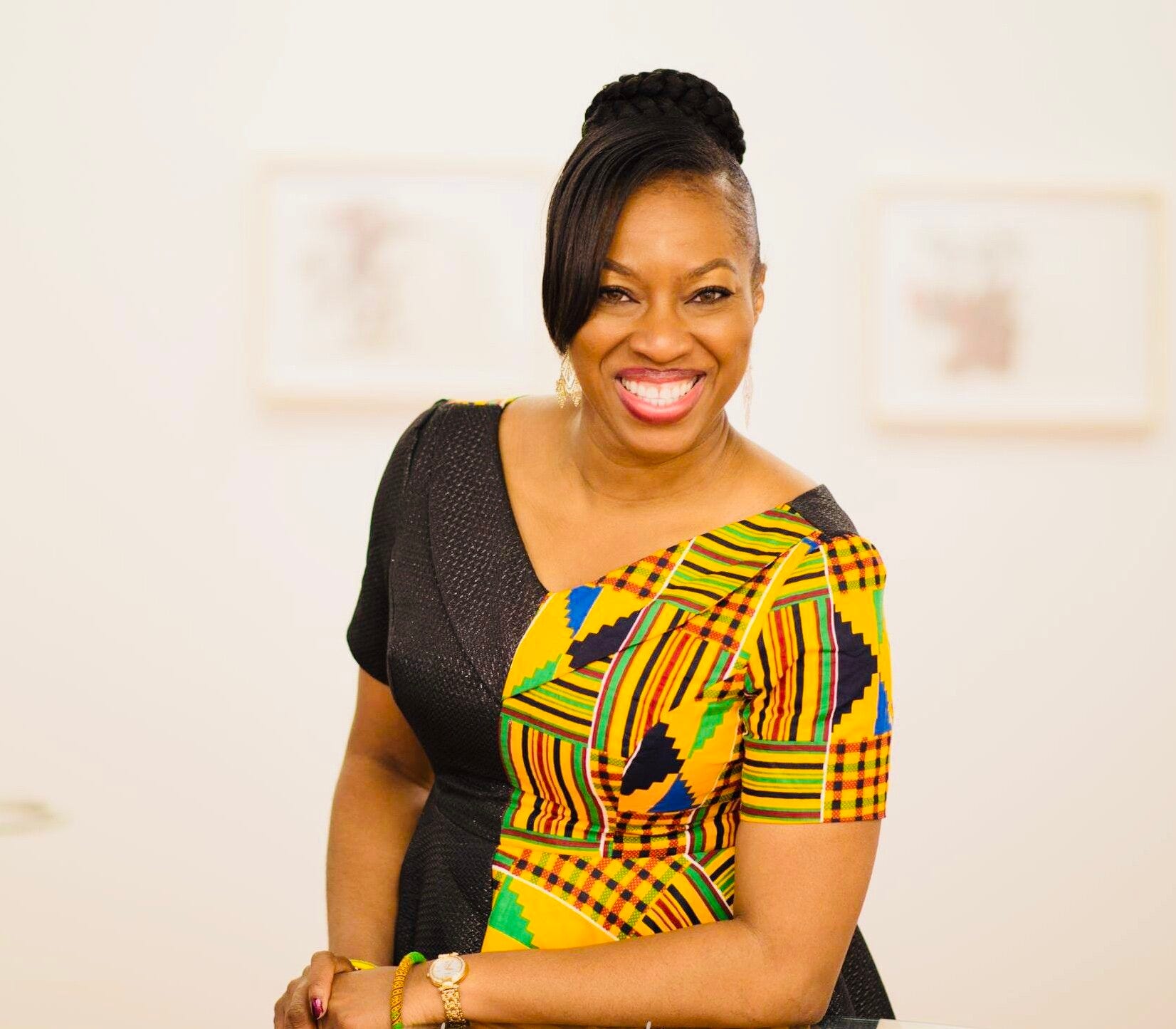 The Moral ImaginationEp. 17: Obianuju Ekeocha: Ideological Colonialism and Resisting the Cultural Annexation of AfricaIn this episode, I speak with Obianuju Ekeocha about the problem of ideological colonialism in Africa in the 21st Century. We discuss how Western governments, international aid agencies, and NGOs impose western, secularist ideas about life, family, and marriage on Africa. Obianuju argues that what we are seeing is a type of cultural annexation of Africa by Western elites that is a new type of colonialism. She argues that just like with 20th century colonialism Western elites collude with African leaders and go against the will of the population. Obianuju (Uju for short) Ekeocha is the author of "Target...2020-11-2049 min
The Moral ImaginationEp. 17: Obianuju Ekeocha: Ideological Colonialism and Resisting the Cultural Annexation of AfricaIn this episode, I speak with Obianuju Ekeocha about the problem of ideological colonialism in Africa in the 21st Century. We discuss how Western governments, international aid agencies, and NGOs impose western, secularist ideas about life, family, and marriage on Africa. Obianuju argues that what we are seeing is a type of cultural annexation of Africa by Western elites that is a new type of colonialism. She argues that just like with 20th century colonialism Western elites collude with African leaders and go against the will of the population. Obianuju (Uju for short) Ekeocha is the author of "Target...2020-11-2049 min The Moral ImaginationEp. 17: Obianuju Ekeocha: Ideological Colonialism and Resisting the Cultural Annexation of AfricaIn this episode, I speak with Obianuju Ekeocha about the problem of ideological colonialism in Africa in the 21st Century. We discuss how Western governments, international aid agencies, and NGOs impose western, secularist ideas about life, family, and marriage on Africa. Obianuju argues that what we are seeing is a type of cultural annexation of Africa by Western elites that is a new type of colonialism. She argues that just like with 20th century colonialism Western elites collude with African leaders and go against the will of the population. Obianuju (Uju for short) Ekeocha is the author of "Target...2020-11-2049 min
The Moral ImaginationEp. 17: Obianuju Ekeocha: Ideological Colonialism and Resisting the Cultural Annexation of AfricaIn this episode, I speak with Obianuju Ekeocha about the problem of ideological colonialism in Africa in the 21st Century. We discuss how Western governments, international aid agencies, and NGOs impose western, secularist ideas about life, family, and marriage on Africa. Obianuju argues that what we are seeing is a type of cultural annexation of Africa by Western elites that is a new type of colonialism. She argues that just like with 20th century colonialism Western elites collude with African leaders and go against the will of the population. Obianuju (Uju for short) Ekeocha is the author of "Target...2020-11-2049 min The Moral ImaginationEp. 16: Dr. Michael Egnor: Does Neuroscience Refute Free Will?Does neuroscience prove there is no free will? Is consciousness reducible to a neural network? Are we determined by our brains? In this episode, I speak again with neurosurgeon, Dr. Michael Egnor. We discuss Sam Harris arguments against free will, and examine not only the philosophical problems with Harris' argument, but Dr. Egnor also argues that Harris incorrectly interprets the work of Benjamin Libet on will and the readiness potential, and that Libet himself did not reject free will. We also discuss the complex question of consciousness and the materialist claims that consciousness can be reduced to a physical...2020-11-121h 22
The Moral ImaginationEp. 16: Dr. Michael Egnor: Does Neuroscience Refute Free Will?Does neuroscience prove there is no free will? Is consciousness reducible to a neural network? Are we determined by our brains? In this episode, I speak again with neurosurgeon, Dr. Michael Egnor. We discuss Sam Harris arguments against free will, and examine not only the philosophical problems with Harris' argument, but Dr. Egnor also argues that Harris incorrectly interprets the work of Benjamin Libet on will and the readiness potential, and that Libet himself did not reject free will. We also discuss the complex question of consciousness and the materialist claims that consciousness can be reduced to a physical...2020-11-121h 22 The Moral ImaginationEp. 16: Dr. Michael Egnor: Does Neuroscience Refute Free Will?Does neuroscience prove there is no free will? Is consciousness reducible to a neural network? Are we determined by our brains? In this episode, I speak again with neurosurgeon, Dr. Michael Egnor. We discuss Sam Harris arguments against free will, and examine not only the philosophical problems with Harris' argument, but Dr. Egnor also argues that Harris incorrectly interprets the work of Benjamin Libet on will and the readiness potential, and that Libet himself did not reject free will. We also discuss the complex question of consciousness and the materialist claims that consciousness can be reduced to a physical...2020-11-121h 22
The Moral ImaginationEp. 16: Dr. Michael Egnor: Does Neuroscience Refute Free Will?Does neuroscience prove there is no free will? Is consciousness reducible to a neural network? Are we determined by our brains? In this episode, I speak again with neurosurgeon, Dr. Michael Egnor. We discuss Sam Harris arguments against free will, and examine not only the philosophical problems with Harris' argument, but Dr. Egnor also argues that Harris incorrectly interprets the work of Benjamin Libet on will and the readiness potential, and that Libet himself did not reject free will. We also discuss the complex question of consciousness and the materialist claims that consciousness can be reduced to a physical...2020-11-121h 22 The Moral ImaginationEp. 15: Gary Saul Morson Ph.D: Thinking Like LeninIn this episode, I speak with Professor Gary Saul Morson about the thought of Vladamir Lenin and how Lenin's ideas and way of seeing the world influences us today. We discuss his New Criterion essay, "Leninthink" and some of the key aspects of Lenin's thought, including Who-Whom: adherence to all politics and life as a win-lose, zero-sum game, the rejection of truth, Party-ness and ideological commitment over all, affirmation of violence, and philosophical materialism. We discuss moral relativism and the adherence to lying that many Western intellectuals failed to understand. Morson gives examples from Arthur Koestler's Darkness at Noon...2020-11-041h 04
The Moral ImaginationEp. 15: Gary Saul Morson Ph.D: Thinking Like LeninIn this episode, I speak with Professor Gary Saul Morson about the thought of Vladamir Lenin and how Lenin's ideas and way of seeing the world influences us today. We discuss his New Criterion essay, "Leninthink" and some of the key aspects of Lenin's thought, including Who-Whom: adherence to all politics and life as a win-lose, zero-sum game, the rejection of truth, Party-ness and ideological commitment over all, affirmation of violence, and philosophical materialism. We discuss moral relativism and the adherence to lying that many Western intellectuals failed to understand. Morson gives examples from Arthur Koestler's Darkness at Noon...2020-11-041h 04 The Moral ImaginationEp. 15: Gary Saul Morson Ph.D: Thinking Like LeninIn this episode, I speak with Professor Gary Saul Morson about the thought of Vladamir Lenin and how Lenin's ideas and way of seeing the world influences us today. We discuss his New Criterion essay, "Leninthink" and some of the key aspects of Lenin's thought, including Who-Whom: adherence to all politics and life as a win-lose, zero-sum game, the rejection of truth, Party-ness and ideological commitment over all, affirmation of violence, and philosophical materialism. We discuss moral relativism and the adherence to lying that many Western intellectuals failed to understand. Morson gives examples from Arthur Koestler's Darkness at Noon...2020-11-041h 04
The Moral ImaginationEp. 15: Gary Saul Morson Ph.D: Thinking Like LeninIn this episode, I speak with Professor Gary Saul Morson about the thought of Vladamir Lenin and how Lenin's ideas and way of seeing the world influences us today. We discuss his New Criterion essay, "Leninthink" and some of the key aspects of Lenin's thought, including Who-Whom: adherence to all politics and life as a win-lose, zero-sum game, the rejection of truth, Party-ness and ideological commitment over all, affirmation of violence, and philosophical materialism. We discuss moral relativism and the adherence to lying that many Western intellectuals failed to understand. Morson gives examples from Arthur Koestler's Darkness at Noon...2020-11-041h 04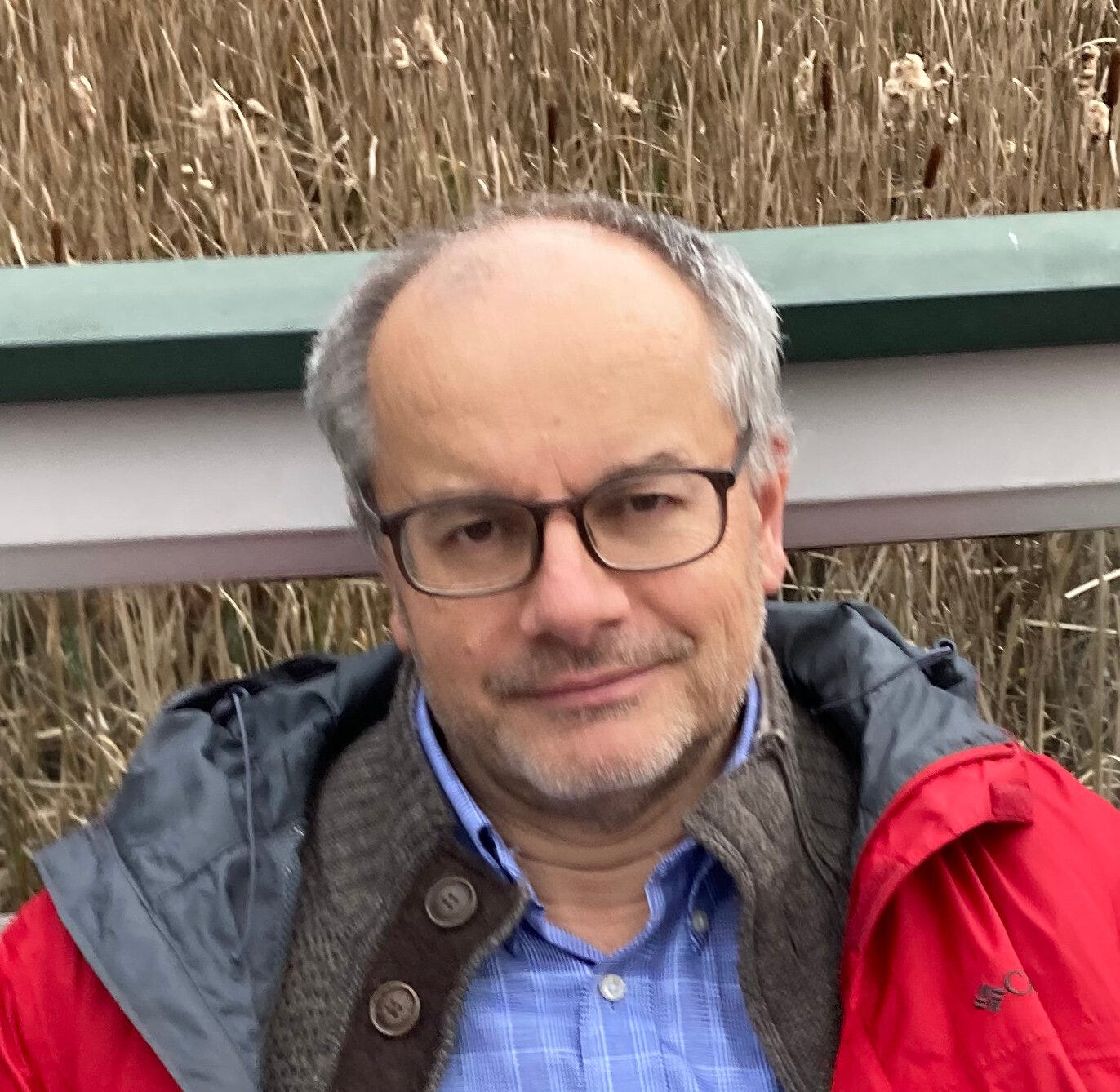 The Moral ImaginationThe Triumph of the Yuppie: Carlo Lancellotti on Augusto del Noce, Secularization, Revolution, and the Crisis of ModernityIn this episode, I speak with Professor Carlo Lancellotti about the late Italian philosopher Augusto Del Noce and the Crisis of Modernity. Del Noce died in 1989, but his writings are very relevant and help explains much of our contemporary situation. In this wide ranging conversation, we talk about totalitarianism, the religious nature of revolution, consumerism, the hybrid of Marxist anthropology with bourgeois pursuit of happiness; hippies and yuppies, the absolutization of politics, and the danger of forbidding questions. Show Notes: https://www.themoralimagination.com/episodes/carlo-lancelotti Get full access to The Moral...2020-10-291h 24
The Moral ImaginationThe Triumph of the Yuppie: Carlo Lancellotti on Augusto del Noce, Secularization, Revolution, and the Crisis of ModernityIn this episode, I speak with Professor Carlo Lancellotti about the late Italian philosopher Augusto Del Noce and the Crisis of Modernity. Del Noce died in 1989, but his writings are very relevant and help explains much of our contemporary situation. In this wide ranging conversation, we talk about totalitarianism, the religious nature of revolution, consumerism, the hybrid of Marxist anthropology with bourgeois pursuit of happiness; hippies and yuppies, the absolutization of politics, and the danger of forbidding questions. Show Notes: https://www.themoralimagination.com/episodes/carlo-lancelotti Get full access to The Moral...2020-10-291h 24 The Moral ImaginationThe Triumph of the Yuppie: Carlo Lancellotti on Augusto del Noce, Secularization, Revolution, and the Crisis of ModernityIn this episode, I speak with Professor Carlo Lancellotti about the late Italian philosopher Augusto Del Noce and the Crisis of Modernity. Del Noce died in 1989, but his writings are very relevant and help explains much of our contemporary situation. In this wide ranging conversation, we talk about totalitarianism, the religious nature of revolution, consumerism, the hybrid of Marxist anthropology with bourgeois pursuit of happiness; hippies and yuppies, the absolutization of politics, and the danger of forbidding questions. Show Notes: https://www.themoralimagination.com/episodes/carlo-lancelotti Get full access to The Moral...2020-10-291h 24
The Moral ImaginationThe Triumph of the Yuppie: Carlo Lancellotti on Augusto del Noce, Secularization, Revolution, and the Crisis of ModernityIn this episode, I speak with Professor Carlo Lancellotti about the late Italian philosopher Augusto Del Noce and the Crisis of Modernity. Del Noce died in 1989, but his writings are very relevant and help explains much of our contemporary situation. In this wide ranging conversation, we talk about totalitarianism, the religious nature of revolution, consumerism, the hybrid of Marxist anthropology with bourgeois pursuit of happiness; hippies and yuppies, the absolutization of politics, and the danger of forbidding questions. Show Notes: https://www.themoralimagination.com/episodes/carlo-lancelotti Get full access to The Moral...2020-10-291h 24 The Moral ImaginationEp. 13: Dr. Michael Egnor, M.D: Are We our Brains? Philosophy and the Foundations of NeuroscienceDoes your brain think? Does your frontal lobe decide? Or do you think and you decide? What is the relationship between the brain and and the mind; between the brain and the person? Neuroscience has entered our everyday speech and increasingly shapes the way we think about ourselves and the world--including some serious conceptual errors. In this episode, I speak with Dr. Michael Egnor, a neurosurgeon and professor of pediatric neurosurgery about some of the philosophical foundations and faulty assumptions of contemporary neuroscience. We discuss his critiques of materialism, positivism, and scientism that underlie much of neuroscience. We also...2020-10-211h 05
The Moral ImaginationEp. 13: Dr. Michael Egnor, M.D: Are We our Brains? Philosophy and the Foundations of NeuroscienceDoes your brain think? Does your frontal lobe decide? Or do you think and you decide? What is the relationship between the brain and and the mind; between the brain and the person? Neuroscience has entered our everyday speech and increasingly shapes the way we think about ourselves and the world--including some serious conceptual errors. In this episode, I speak with Dr. Michael Egnor, a neurosurgeon and professor of pediatric neurosurgery about some of the philosophical foundations and faulty assumptions of contemporary neuroscience. We discuss his critiques of materialism, positivism, and scientism that underlie much of neuroscience. We also...2020-10-211h 05 The Moral ImaginationEp. 13: Dr. Michael Egnor, M.D: Are We our Brains? Philosophy and the Foundations of NeuroscienceDoes your brain think? Does your frontal lobe decide? Or do you think and you decide? What is the relationship between the brain and and the mind; between the brain and the person? Neuroscience has entered our everyday speech and increasingly shapes the way we think about ourselves and the world--including some serious conceptual errors. In this episode, I speak with Dr. Michael Egnor, a neurosurgeon and professor of pediatric neurosurgery about some of the philosophical foundations and faulty assumptions of contemporary neuroscience. We discuss his critiques of materialism, positivism, and scientism that underlie much of neuroscience. We also...2020-10-211h 05
The Moral ImaginationEp. 13: Dr. Michael Egnor, M.D: Are We our Brains? Philosophy and the Foundations of NeuroscienceDoes your brain think? Does your frontal lobe decide? Or do you think and you decide? What is the relationship between the brain and and the mind; between the brain and the person? Neuroscience has entered our everyday speech and increasingly shapes the way we think about ourselves and the world--including some serious conceptual errors. In this episode, I speak with Dr. Michael Egnor, a neurosurgeon and professor of pediatric neurosurgery about some of the philosophical foundations and faulty assumptions of contemporary neuroscience. We discuss his critiques of materialism, positivism, and scientism that underlie much of neuroscience. We also...2020-10-211h 05 The Moral ImaginationEp. 12: Jaron Lanier: Behavior Modification, Virtual Reality, and Re-inventing the InternetIn this episode, I speak with technologist, musician, and author, Jaron Lanier about technology, behavior modification, artificial intelligence and virtual reality and consciousness. We discuss the internet economics, his critique of free services, and how to re-think the internet, data collection, privacy, and paying people for their data. We also discuss the human rights and the nature of personhood. Jaron Lanier is the author of several books on technology and was one of the founders of virtual reality and coined the term. He also wrote a book on the philosophy of the person, "You are not a Gadget: A...2020-10-141h 02
The Moral ImaginationEp. 12: Jaron Lanier: Behavior Modification, Virtual Reality, and Re-inventing the InternetIn this episode, I speak with technologist, musician, and author, Jaron Lanier about technology, behavior modification, artificial intelligence and virtual reality and consciousness. We discuss the internet economics, his critique of free services, and how to re-think the internet, data collection, privacy, and paying people for their data. We also discuss the human rights and the nature of personhood. Jaron Lanier is the author of several books on technology and was one of the founders of virtual reality and coined the term. He also wrote a book on the philosophy of the person, "You are not a Gadget: A...2020-10-141h 02 The Moral ImaginationEp. 12: Jaron Lanier: Behavior Modification, Virtual Reality, and Re-inventing the InternetIn this episode, I speak with technologist, musician, and author, Jaron Lanier about technology, behavior modification, artificial intelligence and virtual reality and consciousness. We discuss the internet economics, his critique of free services, and how to re-think the internet, data collection, privacy, and paying people for their data. We also discuss the human rights and the nature of personhood. Jaron Lanier is the author of several books on technology and was one of the founders of virtual reality and coined the term. He also wrote a book on the philosophy of the person, "You are not a Gadget: A...2020-10-141h 02
The Moral ImaginationEp. 12: Jaron Lanier: Behavior Modification, Virtual Reality, and Re-inventing the InternetIn this episode, I speak with technologist, musician, and author, Jaron Lanier about technology, behavior modification, artificial intelligence and virtual reality and consciousness. We discuss the internet economics, his critique of free services, and how to re-think the internet, data collection, privacy, and paying people for their data. We also discuss the human rights and the nature of personhood. Jaron Lanier is the author of several books on technology and was one of the founders of virtual reality and coined the term. He also wrote a book on the philosophy of the person, "You are not a Gadget: A...2020-10-141h 02 The Moral ImaginationEp. 11: Bradley Birzer, Ph.D: Leviathan Inc.: Robert Nisbet, Decentralization, & LocalismIn this episode, I speak with Brad Birzer about the American Sociologist Robert Nisbet and his critique of the Modern Nation State. Nisbet was a strong proponent of decentralization and a multiplicity of associations. We discuss some of his ideas, including developmentalism, the quest for community, and authority. We also discuss Nisbet's influences—Alexis de Tocqueville, Edmund Burke, Proudhon, and the Counter-Revolutionaries—and his critique of Jean Jacques Rousseau, who he called the "demon of the modern mind". Brad is currently working on a book on Robert Nisbet that will be published by Notre Dame Press. Dr. Birz...2020-10-071h 19
The Moral ImaginationEp. 11: Bradley Birzer, Ph.D: Leviathan Inc.: Robert Nisbet, Decentralization, & LocalismIn this episode, I speak with Brad Birzer about the American Sociologist Robert Nisbet and his critique of the Modern Nation State. Nisbet was a strong proponent of decentralization and a multiplicity of associations. We discuss some of his ideas, including developmentalism, the quest for community, and authority. We also discuss Nisbet's influences—Alexis de Tocqueville, Edmund Burke, Proudhon, and the Counter-Revolutionaries—and his critique of Jean Jacques Rousseau, who he called the "demon of the modern mind". Brad is currently working on a book on Robert Nisbet that will be published by Notre Dame Press. Dr. Birz...2020-10-071h 19 The Moral ImaginationEp. 11: Bradley Birzer, Ph.D: Leviathan Inc.: Robert Nisbet, Decentralization, & LocalismIn this episode, I speak with Brad Birzer about the American Sociologist Robert Nisbet and his critique of the Modern Nation State. Nisbet was a strong proponent of decentralization and a multiplicity of associations. We discuss some of his ideas, including developmentalism, the quest for community, and authority. We also discuss Nisbet's influences—Alexis de Tocqueville, Edmund Burke, Proudhon, and the Counter-Revolutionaries—and his critique of Jean Jacques Rousseau, who he called the "demon of the modern mind". Brad is currently working on a book on Robert Nisbet that will be published by Notre Dame Press. Dr. Birz...2020-10-071h 19
The Moral ImaginationEp. 11: Bradley Birzer, Ph.D: Leviathan Inc.: Robert Nisbet, Decentralization, & LocalismIn this episode, I speak with Brad Birzer about the American Sociologist Robert Nisbet and his critique of the Modern Nation State. Nisbet was a strong proponent of decentralization and a multiplicity of associations. We discuss some of his ideas, including developmentalism, the quest for community, and authority. We also discuss Nisbet's influences—Alexis de Tocqueville, Edmund Burke, Proudhon, and the Counter-Revolutionaries—and his critique of Jean Jacques Rousseau, who he called the "demon of the modern mind". Brad is currently working on a book on Robert Nisbet that will be published by Notre Dame Press. Dr. Birz...2020-10-071h 19 The Moral ImaginationEp. 10: Diana Rodgers: Kale vs Cow: Nutrition, Land Regeneration, and the Case for Better MeatIn this episode, I speak with Diana Rodgers about nutrition, factory farming, subsidies, antibiotics, and why animals are good for the land. Diana is a Registered Nutritionist, a farmer, author, and the host of The Sustainable Dish Podcast. We also discuss why meat is good for you, why fat is healthy, cholesterol, and the Ancel Keys study, diabetes, vegan diets many of the themes in her book "Sacred Cow", co-authored with Robb Wolf, which was released after we did the interview. Diana has also just finished directing and producing a documentary film, also called "Sacred Cow: The Nutritional, Environmental...2020-10-0159 min
The Moral ImaginationEp. 10: Diana Rodgers: Kale vs Cow: Nutrition, Land Regeneration, and the Case for Better MeatIn this episode, I speak with Diana Rodgers about nutrition, factory farming, subsidies, antibiotics, and why animals are good for the land. Diana is a Registered Nutritionist, a farmer, author, and the host of The Sustainable Dish Podcast. We also discuss why meat is good for you, why fat is healthy, cholesterol, and the Ancel Keys study, diabetes, vegan diets many of the themes in her book "Sacred Cow", co-authored with Robb Wolf, which was released after we did the interview. Diana has also just finished directing and producing a documentary film, also called "Sacred Cow: The Nutritional, Environmental...2020-10-0159 min The Moral ImaginationEp. 10: Diana Rodgers: Kale vs Cow: Nutrition, Land Regeneration, and the Case for Better MeatIn this episode, I speak with Diana Rodgers about nutrition, factory farming, subsidies, antibiotics, and why animals are good for the land. Diana is a Registered Nutritionist, a farmer, author, and the host of The Sustainable Dish Podcast. We also discuss why meat is good for you, why fat is healthy, cholesterol, and the Ancel Keys study, diabetes, vegan diets many of the themes in her book "Sacred Cow", co-authored with Robb Wolf, which was released after we did the interview. Diana has also just finished directing and producing a documentary film, also called "Sacred Cow: The Nutritional, Environmental...2020-10-0159 min
The Moral ImaginationEp. 10: Diana Rodgers: Kale vs Cow: Nutrition, Land Regeneration, and the Case for Better MeatIn this episode, I speak with Diana Rodgers about nutrition, factory farming, subsidies, antibiotics, and why animals are good for the land. Diana is a Registered Nutritionist, a farmer, author, and the host of The Sustainable Dish Podcast. We also discuss why meat is good for you, why fat is healthy, cholesterol, and the Ancel Keys study, diabetes, vegan diets many of the themes in her book "Sacred Cow", co-authored with Robb Wolf, which was released after we did the interview. Diana has also just finished directing and producing a documentary film, also called "Sacred Cow: The Nutritional, Environmental...2020-10-0159 min The Moral ImaginationEp. 9: Anthony Bradley, Ph.D: Personalism as a Response to Over-Criminalization and Mass IncarcerationIn this episode, I speak with Dr. Anthony Bradley about his book, "Ending Overcriminalization and Mass Incarceration: Hope from Civil Society". Dr. Anthony Bradley is professor of religious studies and director of the Center for the Study of Human Flourishing at The King's College, Theologian-In-Residence at Redeemer Presbyterian Church—Lincoln Square, and a research fellow at The Acton Institute. Show Notes: https://www.themoralimagination.com/episodes/anthony-bradley-phd Get full access to The Moral Imagination - Michael Matheson Miller at www.themoralimagination.com/subscribe2020-09-231h 27
The Moral ImaginationEp. 9: Anthony Bradley, Ph.D: Personalism as a Response to Over-Criminalization and Mass IncarcerationIn this episode, I speak with Dr. Anthony Bradley about his book, "Ending Overcriminalization and Mass Incarceration: Hope from Civil Society". Dr. Anthony Bradley is professor of religious studies and director of the Center for the Study of Human Flourishing at The King's College, Theologian-In-Residence at Redeemer Presbyterian Church—Lincoln Square, and a research fellow at The Acton Institute. Show Notes: https://www.themoralimagination.com/episodes/anthony-bradley-phd Get full access to The Moral Imagination - Michael Matheson Miller at www.themoralimagination.com/subscribe2020-09-231h 27 The Moral ImaginationEp. 9: Anthony Bradley, Ph.D: Personalism as a Response to Over-Criminalization and Mass IncarcerationIn this episode, I speak with Dr. Anthony Bradley about his book, "Ending Overcriminalization and Mass Incarceration: Hope from Civil Society". Dr. Anthony Bradley is professor of religious studies and director of the Center for the Study of Human Flourishing at The King's College, Theologian-In-Residence at Redeemer Presbyterian Church—Lincoln Square, and a research fellow at The Acton Institute. Show Notes: https://www.themoralimagination.com/episodes/anthony-bradley-phd Get full access to The Moral Imagination - Michael Matheson Miller at www.themoralimagination.com/subscribe2020-09-231h 27
The Moral ImaginationEp. 9: Anthony Bradley, Ph.D: Personalism as a Response to Over-Criminalization and Mass IncarcerationIn this episode, I speak with Dr. Anthony Bradley about his book, "Ending Overcriminalization and Mass Incarceration: Hope from Civil Society". Dr. Anthony Bradley is professor of religious studies and director of the Center for the Study of Human Flourishing at The King's College, Theologian-In-Residence at Redeemer Presbyterian Church—Lincoln Square, and a research fellow at The Acton Institute. Show Notes: https://www.themoralimagination.com/episodes/anthony-bradley-phd Get full access to The Moral Imagination - Michael Matheson Miller at www.themoralimagination.com/subscribe2020-09-231h 27 The Moral ImaginationEp. 8: Glen Weyl, Ph.D: Alternatives to Technocracy & the Ideology of Artificial IntelligenceIn this episode, I speak with Glen Weyl about the ideology of artificial of intelligence, central planning, Communist China, and the problem of technocracy. In a wide-ranging conversation we also talk about collaboration, knowledge and experience, decentralization, individualism, and the Ukranian Genocide—and a number of thinkers including James Scott, Alexis de Tocqueville, Georg Simmel, Joseph Ratzinger, and more. We also discuss subways, coffee, complex society, and problem of ignoring the invisible. It was a lot of fun. Glen is an innovative and very interesting the thinker. He is a political economist and social technologist at the office the Te...2020-09-161h 16
The Moral ImaginationEp. 8: Glen Weyl, Ph.D: Alternatives to Technocracy & the Ideology of Artificial IntelligenceIn this episode, I speak with Glen Weyl about the ideology of artificial of intelligence, central planning, Communist China, and the problem of technocracy. In a wide-ranging conversation we also talk about collaboration, knowledge and experience, decentralization, individualism, and the Ukranian Genocide—and a number of thinkers including James Scott, Alexis de Tocqueville, Georg Simmel, Joseph Ratzinger, and more. We also discuss subways, coffee, complex society, and problem of ignoring the invisible. It was a lot of fun. Glen is an innovative and very interesting the thinker. He is a political economist and social technologist at the office the Te...2020-09-161h 16 The Moral ImaginationEp. 8: Glen Weyl, Ph.D: Alternatives to Technocracy & the Ideology of Artificial IntelligenceIn this episode, I speak with Glen Weyl about the ideology of artificial of intelligence, central planning, Communist China, and the problem of technocracy. In a wide-ranging conversation we also talk about collaboration, knowledge and experience, decentralization, individualism, and the Ukranian Genocide—and a number of thinkers including James Scott, Alexis de Tocqueville, Georg Simmel, Joseph Ratzinger, and more. We also discuss subways, coffee, complex society, and problem of ignoring the invisible. It was a lot of fun. Glen is an innovative and very interesting the thinker. He is a political economist and social technologist at the office the Te...2020-09-161h 16
The Moral ImaginationEp. 8: Glen Weyl, Ph.D: Alternatives to Technocracy & the Ideology of Artificial IntelligenceIn this episode, I speak with Glen Weyl about the ideology of artificial of intelligence, central planning, Communist China, and the problem of technocracy. In a wide-ranging conversation we also talk about collaboration, knowledge and experience, decentralization, individualism, and the Ukranian Genocide—and a number of thinkers including James Scott, Alexis de Tocqueville, Georg Simmel, Joseph Ratzinger, and more. We also discuss subways, coffee, complex society, and problem of ignoring the invisible. It was a lot of fun. Glen is an innovative and very interesting the thinker. He is a political economist and social technologist at the office the Te...2020-09-161h 16 The Moral ImaginationEp. 7: Joel Salatin: Simple Truths About Man, Nature, Stewardship, & FarmingMichael welcomes to the show Joel Salatin, prolific writer, renowned public speaker, and self-described "Christian libertarian environmentalist capitalist lunatic farmer" to discuss his unique approach to agriculture, animal husbandry, work, and mankind's relationship with nature. Get full access to The Moral Imagination - Michael Matheson Miller at www.themoralimagination.com/subscribe2019-10-311h 19
The Moral ImaginationEp. 7: Joel Salatin: Simple Truths About Man, Nature, Stewardship, & FarmingMichael welcomes to the show Joel Salatin, prolific writer, renowned public speaker, and self-described "Christian libertarian environmentalist capitalist lunatic farmer" to discuss his unique approach to agriculture, animal husbandry, work, and mankind's relationship with nature. Get full access to The Moral Imagination - Michael Matheson Miller at www.themoralimagination.com/subscribe2019-10-311h 19 The Moral ImaginationEp. 7: Joel Salatin: Simple Truths About Man, Nature, Stewardship, & FarmingMichael welcomes to the show Joel Salatin, prolific writer, renowned public speaker, and self-described "Christian libertarian environmentalist capitalist lunatic farmer" to discuss his unique approach to agriculture, animal husbandry, work, and mankind's relationship with nature. Get full access to The Moral Imagination - Michael Matheson Miller at www.themoralimagination.com/subscribe2019-10-311h 19
The Moral ImaginationEp. 7: Joel Salatin: Simple Truths About Man, Nature, Stewardship, & FarmingMichael welcomes to the show Joel Salatin, prolific writer, renowned public speaker, and self-described "Christian libertarian environmentalist capitalist lunatic farmer" to discuss his unique approach to agriculture, animal husbandry, work, and mankind's relationship with nature. Get full access to The Moral Imagination - Michael Matheson Miller at www.themoralimagination.com/subscribe2019-10-311h 19 The Moral ImaginationEp. 6: Dr. Patrick Lee: What Does it Really Mean to be a Human Being?Michael welcomes Dr. Patrick Lee, director of the Center for Bio-Ethics at Franciscan University in Steubenville, Ohio, to discuss his book, "Body-Self Dualism in Contemporary Ethics and Politics", which examines the key questions surrounding the very complex topic of what it means to be a human being. In their discussion, Michael and Dr. Lee touch on issues such as abortion, euthanasia, gender, and sexuality. Get full access to The Moral Imagination - Michael Matheson Miller at www.themoralimagination.com/subscribe2019-10-251h 22
The Moral ImaginationEp. 6: Dr. Patrick Lee: What Does it Really Mean to be a Human Being?Michael welcomes Dr. Patrick Lee, director of the Center for Bio-Ethics at Franciscan University in Steubenville, Ohio, to discuss his book, "Body-Self Dualism in Contemporary Ethics and Politics", which examines the key questions surrounding the very complex topic of what it means to be a human being. In their discussion, Michael and Dr. Lee touch on issues such as abortion, euthanasia, gender, and sexuality. Get full access to The Moral Imagination - Michael Matheson Miller at www.themoralimagination.com/subscribe2019-10-251h 22 The Moral ImaginationEp. 6: Dr. Patrick Lee: What Does it Really Mean to be a Human Being?Michael welcomes Dr. Patrick Lee, director of the Center for Bio-Ethics at Franciscan University in Steubenville, Ohio, to discuss his book, "Body-Self Dualism in Contemporary Ethics and Politics", which examines the key questions surrounding the very complex topic of what it means to be a human being. In their discussion, Michael and Dr. Lee touch on issues such as abortion, euthanasia, gender, and sexuality. Get full access to The Moral Imagination - Michael Matheson Miller at www.themoralimagination.com/subscribe2019-10-251h 22
The Moral ImaginationEp. 6: Dr. Patrick Lee: What Does it Really Mean to be a Human Being?Michael welcomes Dr. Patrick Lee, director of the Center for Bio-Ethics at Franciscan University in Steubenville, Ohio, to discuss his book, "Body-Self Dualism in Contemporary Ethics and Politics", which examines the key questions surrounding the very complex topic of what it means to be a human being. In their discussion, Michael and Dr. Lee touch on issues such as abortion, euthanasia, gender, and sexuality. Get full access to The Moral Imagination - Michael Matheson Miller at www.themoralimagination.com/subscribe2019-10-251h 22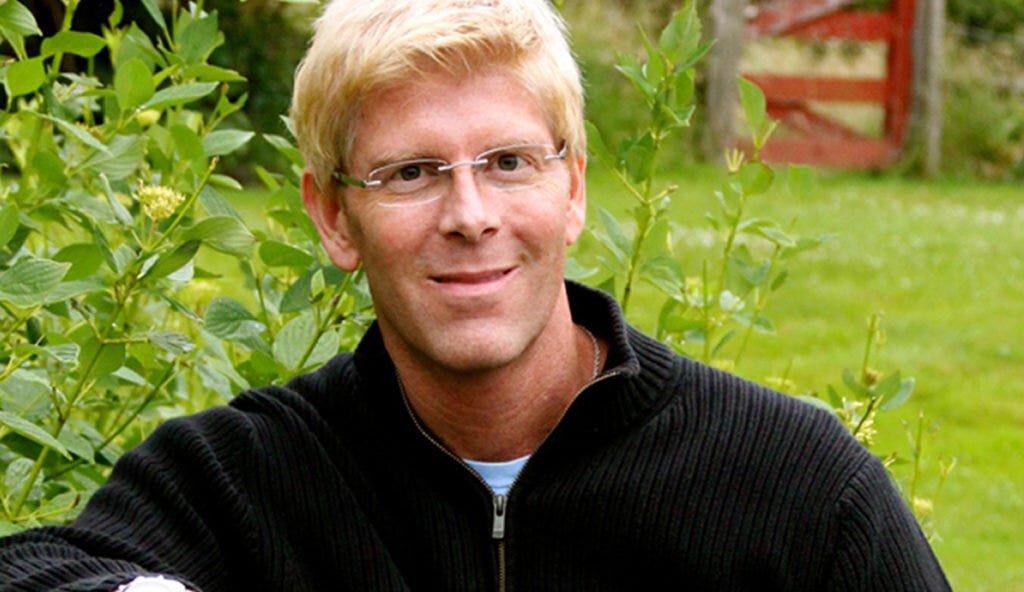 The Moral ImaginationEp. 5: Jay Richards, Ph.D: Philosophical MaterialismProfessor Jay Richards returns to discuss the second half his book, The Human Advantage: The Future of Work in an Age of Smart Machines. This half of the book focuses on philosophical materialism and its impact on human flourishing. Get full access to The Moral Imagination - Michael Matheson Miller at www.themoralimagination.com/subscribe2019-10-1739 min
The Moral ImaginationEp. 5: Jay Richards, Ph.D: Philosophical MaterialismProfessor Jay Richards returns to discuss the second half his book, The Human Advantage: The Future of Work in an Age of Smart Machines. This half of the book focuses on philosophical materialism and its impact on human flourishing. Get full access to The Moral Imagination - Michael Matheson Miller at www.themoralimagination.com/subscribe2019-10-1739 min The Moral ImaginationEp. 5: Jay Richards, Ph.D: Philosophical MaterialismProfessor Jay Richards returns to discuss the second half his book, The Human Advantage: The Future of Work in an Age of Smart Machines. This half of the book focuses on philosophical materialism and its impact on human flourishing. Get full access to The Moral Imagination - Michael Matheson Miller at www.themoralimagination.com/subscribe2019-10-1739 min
The Moral ImaginationEp. 5: Jay Richards, Ph.D: Philosophical MaterialismProfessor Jay Richards returns to discuss the second half his book, The Human Advantage: The Future of Work in an Age of Smart Machines. This half of the book focuses on philosophical materialism and its impact on human flourishing. Get full access to The Moral Imagination - Michael Matheson Miller at www.themoralimagination.com/subscribe2019-10-1739 min The Moral ImaginationEp. 4: Dr. Gregory Thornbury: Rene Girard and the Mimetic CycleDr. Gregory Thornbury, Vice President for Development at the New York Academy of Art and former President of King's College in New York, joins Michael to discuss the thought of Rene Girard, specifically the concept of mimesis and the mimetic cycle, which can be traced throughout human history. Get full access to The Moral Imagination - Michael Matheson Miller at www.themoralimagination.com/subscribe2019-10-0950 min
The Moral ImaginationEp. 4: Dr. Gregory Thornbury: Rene Girard and the Mimetic CycleDr. Gregory Thornbury, Vice President for Development at the New York Academy of Art and former President of King's College in New York, joins Michael to discuss the thought of Rene Girard, specifically the concept of mimesis and the mimetic cycle, which can be traced throughout human history. Get full access to The Moral Imagination - Michael Matheson Miller at www.themoralimagination.com/subscribe2019-10-0950 min The Moral ImaginationEp. 4: Dr. Gregory Thornbury: Rene Girard and the Mimetic CycleDr. Gregory Thornbury, Vice President for Development at the New York Academy of Art and former President of King's College in New York, joins Michael to discuss the thought of Rene Girard, specifically the concept of mimesis and the mimetic cycle, which can be traced throughout human history. Get full access to The Moral Imagination - Michael Matheson Miller at www.themoralimagination.com/subscribe2019-10-0950 min
The Moral ImaginationEp. 4: Dr. Gregory Thornbury: Rene Girard and the Mimetic CycleDr. Gregory Thornbury, Vice President for Development at the New York Academy of Art and former President of King's College in New York, joins Michael to discuss the thought of Rene Girard, specifically the concept of mimesis and the mimetic cycle, which can be traced throughout human history. Get full access to The Moral Imagination - Michael Matheson Miller at www.themoralimagination.com/subscribe2019-10-0950 min The Moral ImaginationEp. 3: Jay Richards Ph.D: The Future of Work in an Age of Smart MachinesProfessor Jay Richards of the Catholic University of America's Busch School of Business and the Discovery Institute joins Michael to discuss his book, The Human Advantage: The Future of Work in an Age of Smart Machines, which deals with the rise of artificial intelligence and it's impact on economies, culture, and human life. Get full access to The Moral Imagination - Michael Matheson Miller at www.themoralimagination.com/subscribe2019-10-031h 01
The Moral ImaginationEp. 3: Jay Richards Ph.D: The Future of Work in an Age of Smart MachinesProfessor Jay Richards of the Catholic University of America's Busch School of Business and the Discovery Institute joins Michael to discuss his book, The Human Advantage: The Future of Work in an Age of Smart Machines, which deals with the rise of artificial intelligence and it's impact on economies, culture, and human life. Get full access to The Moral Imagination - Michael Matheson Miller at www.themoralimagination.com/subscribe2019-10-031h 01 The Moral ImaginationEp. 3: Jay Richards Ph.D: The Future of Work in an Age of Smart MachinesProfessor Jay Richards of the Catholic University of America's Busch School of Business and the Discovery Institute joins Michael to discuss his book, The Human Advantage: The Future of Work in an Age of Smart Machines, which deals with the rise of artificial intelligence and it's impact on economies, culture, and human life. Get full access to The Moral Imagination - Michael Matheson Miller at www.themoralimagination.com/subscribe2019-10-031h 01
The Moral ImaginationEp. 3: Jay Richards Ph.D: The Future of Work in an Age of Smart MachinesProfessor Jay Richards of the Catholic University of America's Busch School of Business and the Discovery Institute joins Michael to discuss his book, The Human Advantage: The Future of Work in an Age of Smart Machines, which deals with the rise of artificial intelligence and it's impact on economies, culture, and human life. Get full access to The Moral Imagination - Michael Matheson Miller at www.themoralimagination.com/subscribe2019-10-031h 01 The Moral ImaginationEp. 2: Dan Mahoney: Solzhenitsyn and the Gulag Archipelago Dan MahoneyProfessor Dan Mahoney of Assumption College joins Michael to discuss Aleksandr Solzhenitsyn and his seminal work, the Gulag Archipelago. Get full access to The Moral Imagination - Michael Matheson Miller at www.themoralimagination.com/subscribe2019-10-0258 min
The Moral ImaginationEp. 2: Dan Mahoney: Solzhenitsyn and the Gulag Archipelago Dan MahoneyProfessor Dan Mahoney of Assumption College joins Michael to discuss Aleksandr Solzhenitsyn and his seminal work, the Gulag Archipelago. Get full access to The Moral Imagination - Michael Matheson Miller at www.themoralimagination.com/subscribe2019-10-0258 min The Moral ImaginationEp. 2: Dan Mahoney: Solzhenitsyn and the Gulag Archipelago Dan MahoneyProfessor Dan Mahoney of Assumption College joins Michael to discuss Aleksandr Solzhenitsyn and his seminal work, the Gulag Archipelago. Get full access to The Moral Imagination - Michael Matheson Miller at www.themoralimagination.com/subscribe2019-10-0258 min
The Moral ImaginationEp. 2: Dan Mahoney: Solzhenitsyn and the Gulag Archipelago Dan MahoneyProfessor Dan Mahoney of Assumption College joins Michael to discuss Aleksandr Solzhenitsyn and his seminal work, the Gulag Archipelago. Get full access to The Moral Imagination - Michael Matheson Miller at www.themoralimagination.com/subscribe2019-10-0258 min The Moral ImaginationEp. 1: James Otteson Ph.D: Aristotle and the Good LifeProfessor James Otteson of Wake Forest University and the Eudaimonia Institute joins Michael to discuss Aristotle, Eudaimonia, human flourishing, and what it means to lead a good life. Get full access to The Moral Imagination - Michael Matheson Miller at www.themoralimagination.com/subscribe2019-06-171h 15
The Moral ImaginationEp. 1: James Otteson Ph.D: Aristotle and the Good LifeProfessor James Otteson of Wake Forest University and the Eudaimonia Institute joins Michael to discuss Aristotle, Eudaimonia, human flourishing, and what it means to lead a good life. Get full access to The Moral Imagination - Michael Matheson Miller at www.themoralimagination.com/subscribe2019-06-171h 15 The Moral ImaginationEp. 1: James Otteson Ph.D: Aristotle and the Good LifeProfessor James Otteson of Wake Forest University and the Eudaimonia Institute joins Michael to discuss Aristotle, Eudaimonia, human flourishing, and what it means to lead a good life. Get full access to The Moral Imagination - Michael Matheson Miller at www.themoralimagination.com/subscribe2019-06-171h 15
The Moral ImaginationEp. 1: James Otteson Ph.D: Aristotle and the Good LifeProfessor James Otteson of Wake Forest University and the Eudaimonia Institute joins Michael to discuss Aristotle, Eudaimonia, human flourishing, and what it means to lead a good life. Get full access to The Moral Imagination - Michael Matheson Miller at www.themoralimagination.com/subscribe2019-06-171h 15 The Catholic ConversationThe Catholic Conversation: 3/22/16 – Michael Matheson Miller, Poverty, Inc.Michael Matheson Miller, producer/director, Poverty, Inc., research fellow and director of Acton Media at the Acton Institute, helps us understand the issues surrounding aid and a new documentary. This broadcast of The Catholic Conversation is brought to you by Bradley Hahn, Attorney at Law. Never miss a show! Subscribe to our podcast on iTunes! 3-22-16-Catholic-Convo2016-03-2257 min
The Catholic ConversationThe Catholic Conversation: 3/22/16 – Michael Matheson Miller, Poverty, Inc.Michael Matheson Miller, producer/director, Poverty, Inc., research fellow and director of Acton Media at the Acton Institute, helps us understand the issues surrounding aid and a new documentary. This broadcast of The Catholic Conversation is brought to you by Bradley Hahn, Attorney at Law. Never miss a show! Subscribe to our podcast on iTunes! 3-22-16-Catholic-Convo2016-03-2257 min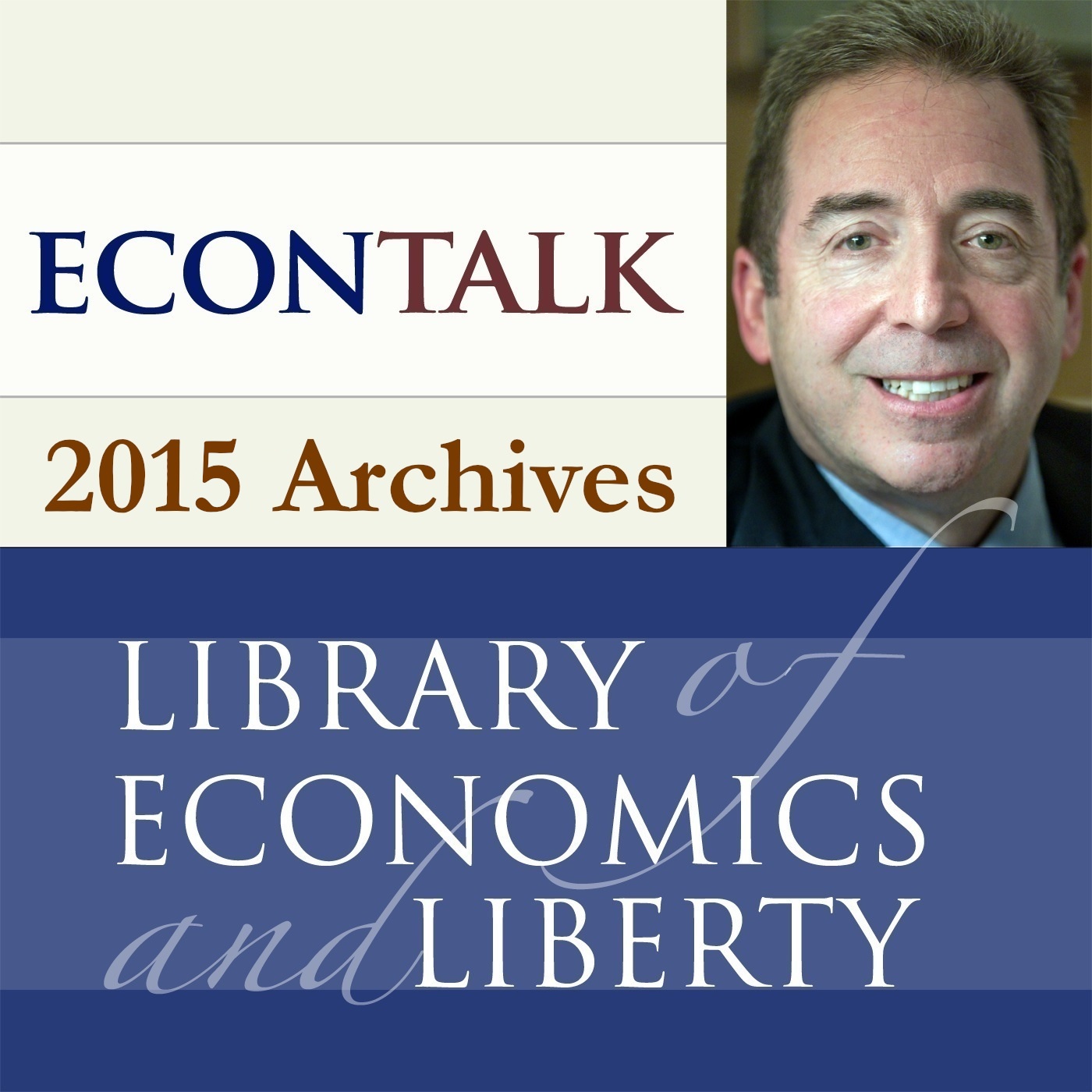 EconTalk Archives, 2015Michael Matheson Miller on Poverty, IncMichael Matheson Miller of the Acton Institute and the Director of the documentary Poverty, Inc., talks with EconTalk host Russ Roberts about his award-winning documentary on the barriers facing the poor around the world. Topics discussed include the incentives facing poverty-fighting NGOs and their staff, the importance of secure and well-defined property rights, and the costs and benefits of agricultural aid.2015-11-021h 09
EconTalk Archives, 2015Michael Matheson Miller on Poverty, IncMichael Matheson Miller of the Acton Institute and the Director of the documentary Poverty, Inc., talks with EconTalk host Russ Roberts about his award-winning documentary on the barriers facing the poor around the world. Topics discussed include the incentives facing poverty-fighting NGOs and their staff, the importance of secure and well-defined property rights, and the costs and benefits of agricultural aid.2015-11-021h 09 EconTalkMichael Matheson Miller on Poverty, IncMichael Matheson Miller of the Acton Institute and the Director of the documentary Poverty, Inc., talks with EconTalk host Russ Roberts about his award-winning documentary on the barriers facing the poor around the world. Topics discussed include the incentives facing poverty-fighting NGOs and their staff, the importance of secure and well-defined property rights, and the costs and benefits of agricultural aid.
2015-11-021h 09
EconTalkMichael Matheson Miller on Poverty, IncMichael Matheson Miller of the Acton Institute and the Director of the documentary Poverty, Inc., talks with EconTalk host Russ Roberts about his award-winning documentary on the barriers facing the poor around the world. Topics discussed include the incentives facing poverty-fighting NGOs and their staff, the importance of secure and well-defined property rights, and the costs and benefits of agricultural aid.
2015-11-021h 09 The Catholic ConversationThe Catholic Conversation: 6/3/14 – Michael Matheson Miller on PovertyMichael Matheson Miller, research fellow and director of Acton Media at the Acton Institute talks about a free market approach to ending poverty. This broadcast of The Catholic Conversation is brought to you by Villa Fatima Skilled Nursing Centers and Bradley Hahn, Attorney at Law. 6-3-14-Catholic-Conversation2014-06-0258 min
The Catholic ConversationThe Catholic Conversation: 6/3/14 – Michael Matheson Miller on PovertyMichael Matheson Miller, research fellow and director of Acton Media at the Acton Institute talks about a free market approach to ending poverty. This broadcast of The Catholic Conversation is brought to you by Villa Fatima Skilled Nursing Centers and Bradley Hahn, Attorney at Law. 6-3-14-Catholic-Conversation2014-06-0258 min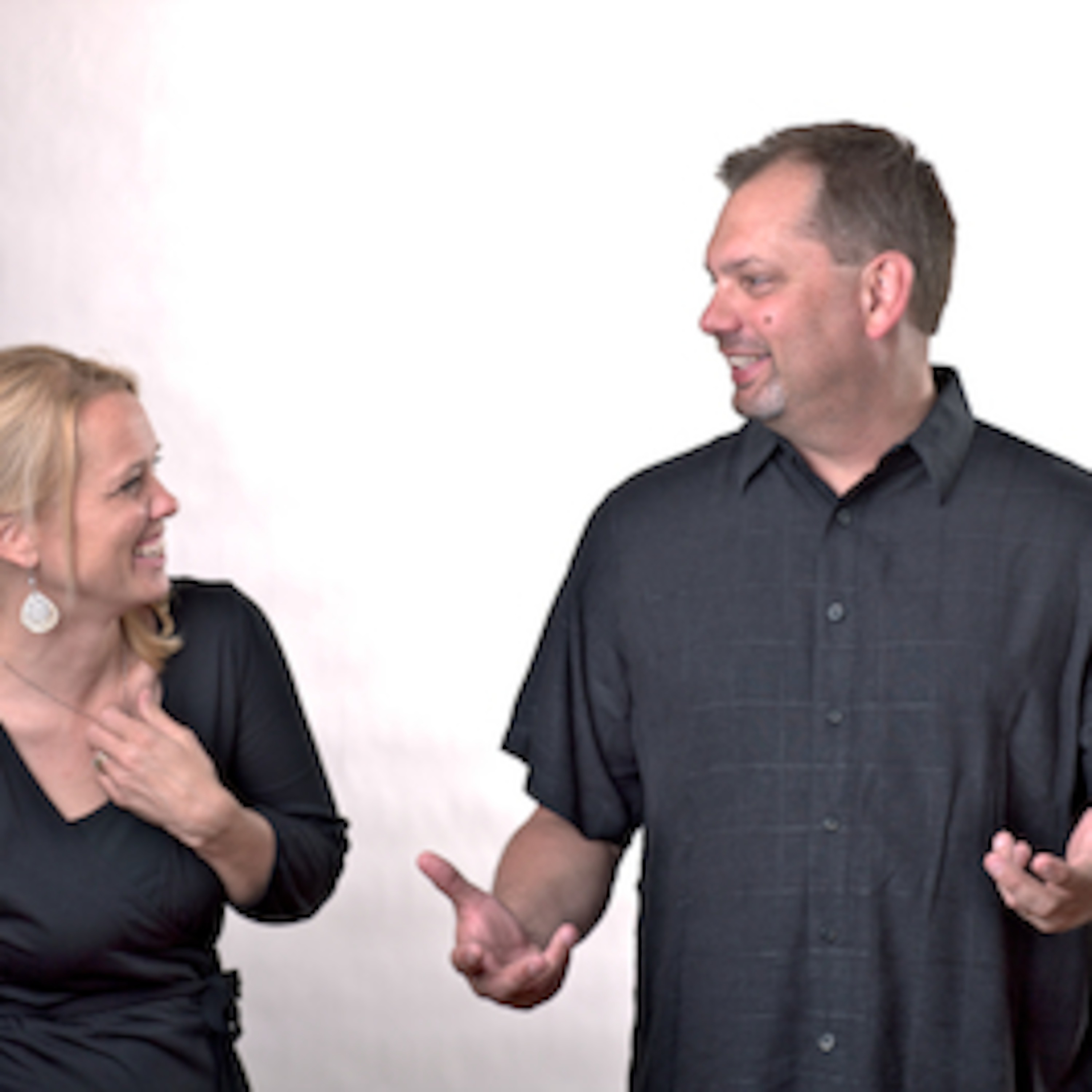 Real Life with Beth and RobMichael Matheson Miller - Bishop W.C. MartinMichael Matheson Miller - Poverty Cure
Bishop W. C. Martin - "Small Town, Big Miracle"2013-07-1652 min
Real Life with Beth and RobMichael Matheson Miller - Bishop W.C. MartinMichael Matheson Miller - Poverty Cure
Bishop W. C. Martin - "Small Town, Big Miracle"2013-07-1652 min